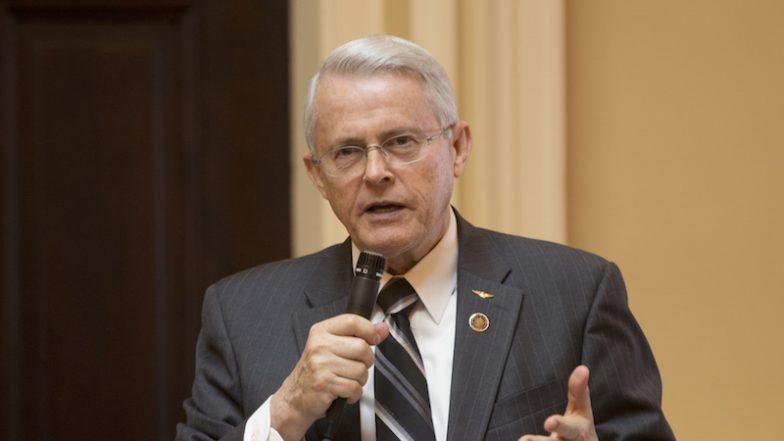
Colonel Richard Black [Source: legistorm.com] 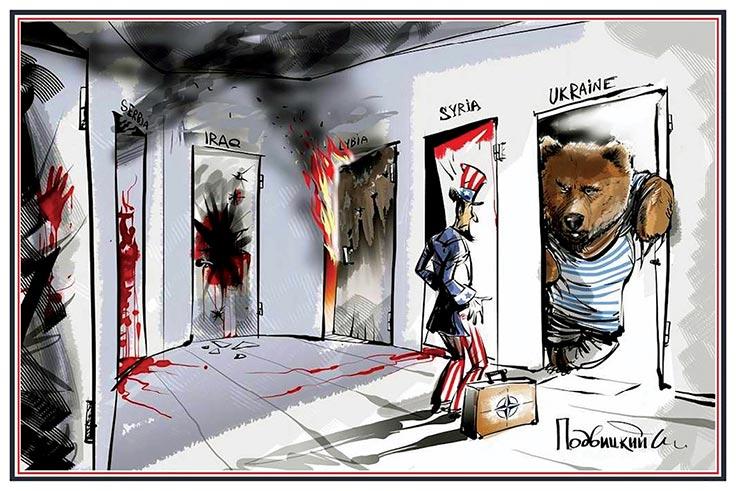
[Source: armyupress.army.mil]
Says sinking of Russian warship by Ukraine with aid of U.S. intelligence is tantamount to an act of war
Colonel Richard Black has been one of the few former high-ranking military officers or government officials to speak out against U.S. military intervention in places like Syria and Ukraine. He is extremely concerned about the prospects of nuclear war breaking out and appalled at the callousness in which some government officials talk about a nuclear first strike.
In a May 17 interview with CAM, transcribed below, Colonel Black emphasized the grave danger associated with Ukraine’s sinking of the Moskva, Russia’s flagship Black Sea missile cruiser, with assistance from U.S. intelligence. According to Black, this act was tantamount to an act of war. He warns that we’re now “at a 1914 moment [year when World War I broke out].”
The triggering act for the latter was the assassination of the Austro-Hungarian Archduke Franz Ferdinand by a Serbian nationalist (Gavrilo Princip), while the sinking of the Moskva may very well be the triggering act for the outbreak of World War III.
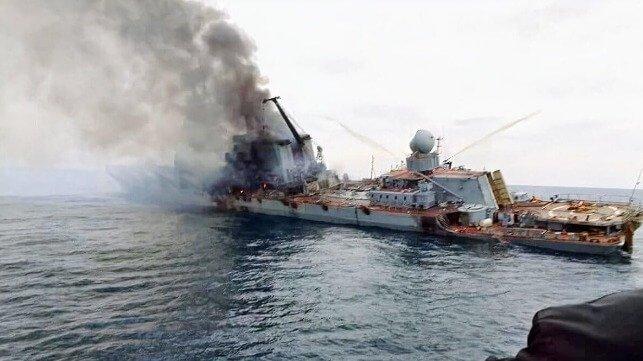
In the Tradition of George Washington
Colonel Black flew 269 combat missions in the Vietnam War, winning a Purple Heart. He served in the Virginia State Senate from 2012 to 2020 and was a member of the Virginia House of Delegates from 1998-2006.
Black is that rare breed of principled conservative who supports limited government including in the realm of foreign affairs. He operates in the tradition of George Washington, who warned in his farewell address about the threat to democracy of a large standing army.
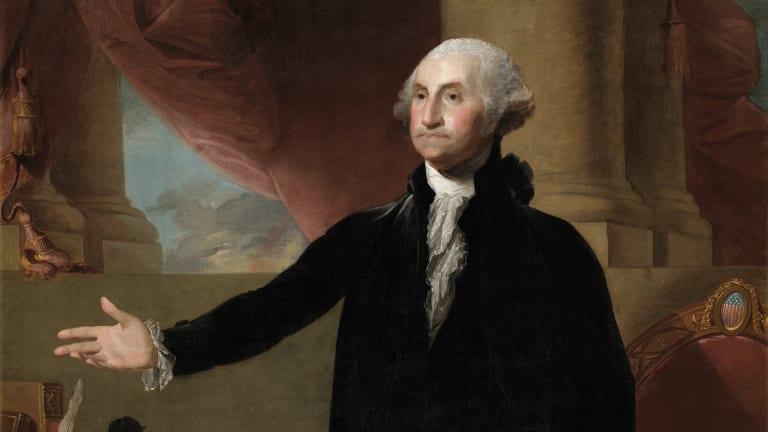
CAM is rooted in the political left; however, an anti-war and anti-imperialist political coalition could be forged with principled conservatives like Black and challenge what veteran CIA analyst Ray McGovern calls MICIMATT—the military-industrial-congressional-intelligence-media-academia-think-tank complex.
Black’s outspoken opposition to U.S. involvement in Ukraine contrasts markedly with so-called progressives like Bernie Sanders, Alexandria Ocasio-Cortez, and members of “the Squad” who have aligned with the Democratic Party establishment war-makers and voted in favor of the recent $40 billion military aid package to Ukraine—among others there.
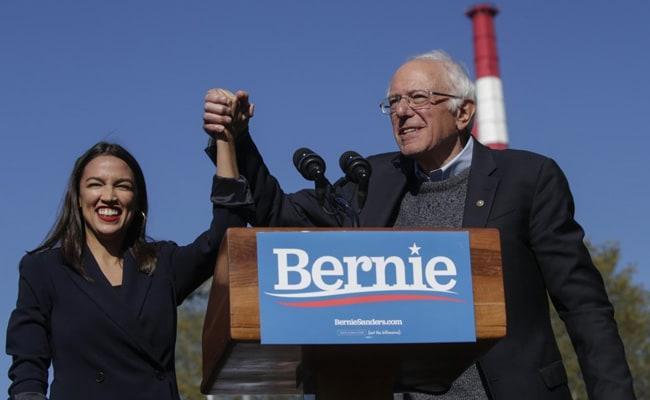
In 2016, Black traveled to Syria and met with its president Bashar al-Assad, to whom he had written a letter thanking for saving Christians in the Qalamoun Mountain range. In his letter, Black praised Assad for “treating with respect all Christians and the small community of Jews in Damascus,” stating it was obvious that the rebel side of the war was largely being fought by “vicious war criminals linked to Al Qaeda.”
The Islamic State subsequently included Colonel Black on a list of enemies, calling him “the American Crusader,” and quoted a statement he made suggesting that, if Damascus fell, “the dreaded black and white flag of ISIS will fly over Damascus.”
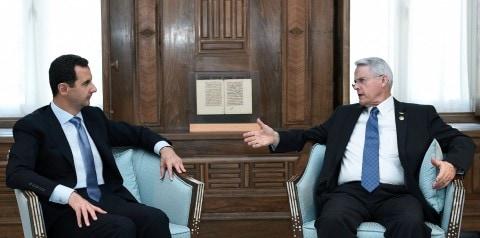
Below is an edited transcript of my interview with Colonel Black:
Jeremy Kuzmarov: Thanks for joining us Colonel. I want to mainly discuss the conflict in Ukraine and Syria with you. But first, if you can start with just a bit about your background, including your involvement in the Vietnam war and how that might’ve shaped your outlook towards war and military intervention.
Colonel Black: I retired out of the Pentagon in 1994 and I have spent a lot of time in the Virginia legislature. I was in the House of Delegates. And in the Senate over a span of 20 years. And Vietnam was an important factor in all this because I want to make the point, I don’t come at this as somebody who is anti-American or anything of that sort. I’m patriotic. I volunteered to fight in Vietnam. I was a Marine Corps helicopter pilot and flew 269 combat missions and was hit by ground fire on four occasions. And then I volunteered to fight on the ground with the First Marine Division. I was a forward air controller and fought in the bloodiest engagement of the entire war for the Marines. During the final battle, I served in about 70 combat patrols, most of them at night, most of them in heavily enemy-controlled areas.
And on the last patrol we were trying to rescue a Marine outpost and during the attack to do that, I was wounded and both of my radio men were killed right beside me. So I put my life on the line many times for the country, hundreds of times, literally. And so I just say that to lay the background, because sometimes you’ll get people who are critical of someone who takes a different point of view like I have and say, well, you know, he’s never done anything for this country.
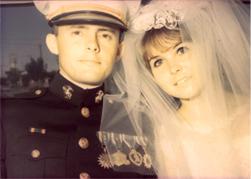
Actually, I think you’ll find most of the, most of the people pushing for war have done precious little for the country. And so anyway, I just put that by way of background. Now after fighting in Vietnam, I attended law school and I was an Army JAG officer and did a great number of things, including serving as part of the North Atlantic Treaty Organization (NATO) in Germany for three years.
During the height of the Cold War at that time, NATO was a very good defensive alliance. And we were faced with the Soviet Union, which was a very aggressive entity right across the east-west border. Eventually I was in the Pentagon where I advised the Senate Armed Services Committee, and wrote executive orders for the president. And so I come at this as somebody who’s very much, I guess, a part of the American establishment. But I have very grave differences with the direction that we’re headed right now.
Jeremy Kuzmarov: And just for clarification, what years did you serve in Vietnam?
Colonel Black: I was there in 1966 and 1967. I was in two small unit battles where men won the Medal of Honor. It was a time of blistering bloody combat, something that I don’t wish on other people. I have no interest in seeing young Ukrainian men or young Russian men killed in battle for the glory of the politicians and the global elite.
Jeremy Kuzmarov: It seems that you were generally supporting U.S. policy in the Cold War. In hindsight, do you think Vietnam was a misguided war?
Colonel Black: Well, in this sense [yes, it was misguided]. The president of South Vietnam, Ngô Đình Diệm, was a very talented politician. He wanted the United States to provide him with weapons because he was fighting an insurgency and eventually an invasion from the North. But he did not want us to come in with military troops because he said, as soon as you do that, you’re going to be viewed as another colonial empire.
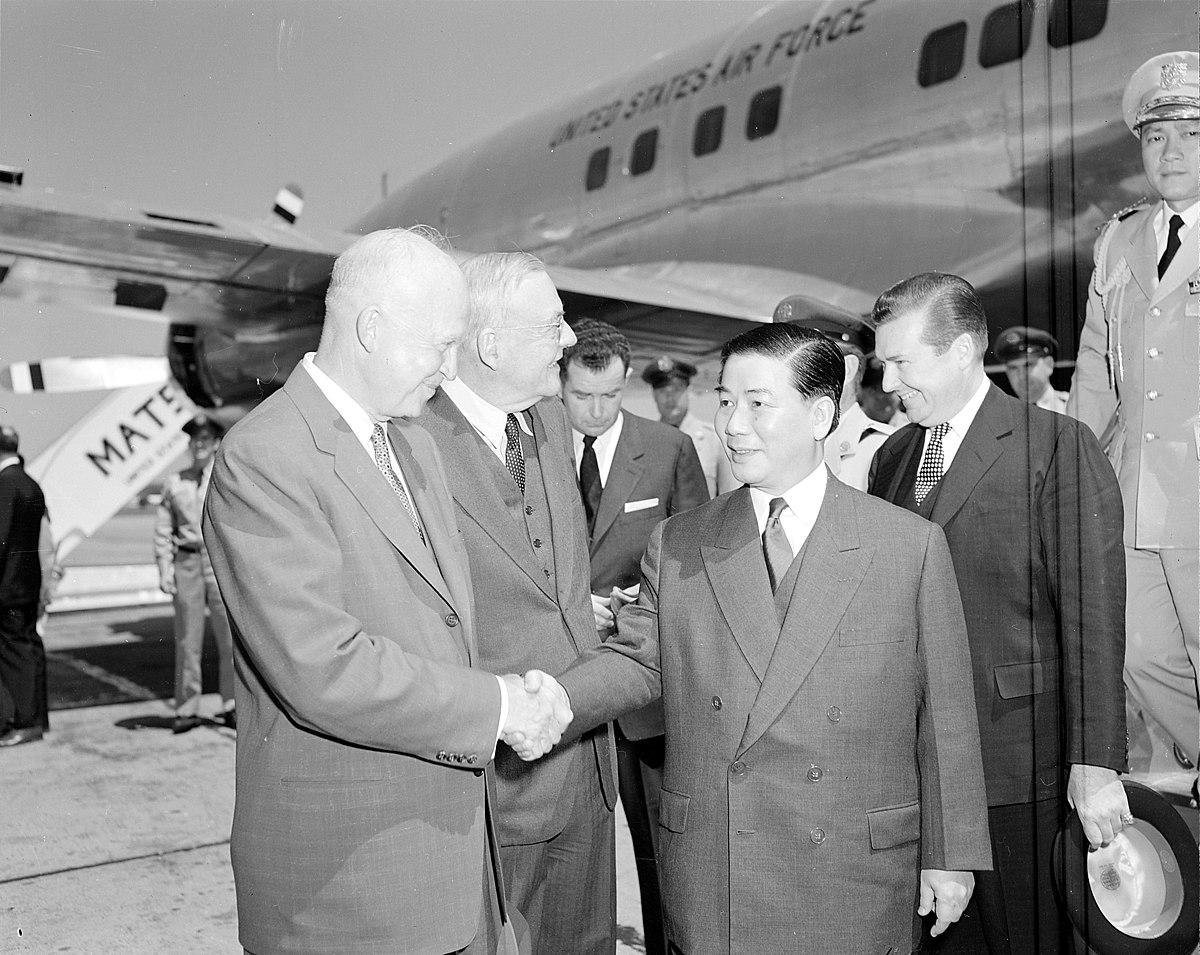
Just like the French, just like the Japanese. When Diệm was assassinated—at the behest of the President and at the orders of the Central Intelligence Agency (CIA)—the North Vietnamese were absolutely stunned. Ho Chi Minh was amazed. He was deadly enemies with Ngô Đình Diệm, but he said the Americans have been astoundingly stupid.
This is because they have killed the one man that we could never outmaneuver. It wasn’t just [in the realm of the] military. Ngô Đình Diệm understood the politics and the complexities of the Vietnamese culture and the North Vietnamese [would have had difficulty] overcoming his insight and wisdom. But we, like we do often, decided, well, he’s an impediment to what we’re doing. We’ll get rid of him. He was taken out by a General’s coup. They captured him eventually with the help of the CIA, took him off in an armored personnel carrier and killed him, assassinated him and his brother. So we never needed to be there [in Vietnam].
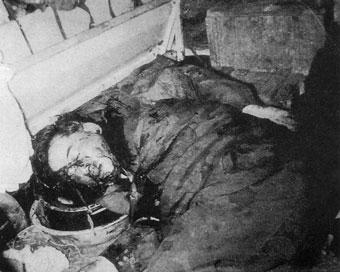
Now, once we were there, the people who fought with us [the U.S.] fought with enormous gallantry and courage and self-sacrifice. In many ways. I think we were fighting for a good cause, but we were fighting a war we never needed to fight. And that was really the key issue at stake; that we never should have been there. It would have saved a lot of bloodshed and the war [within Vietnam] would have ended differently.
Jeremy Kuzmarov: Thanks. It’s interesting to hear this. I interviewed a lot of Vietnam veterans before [for my book, The Myth of the Addicted Army: Vietnam and the Modern War on Drugs], and it’s always interesting to hear their points of view. Now you worked for NATO in the 1980s during the Cold War. Can you briefly relay your experience and compare the situation in the 1980s with today?
Colonel Black: [When I worked for NATO] it was at the height of the Cold War and the Soviet Union was very threatening [as Black saw it] and a tremendous nuclear power. There were tanks lined up on the border. Thousands and thousands of tanks. And we thought there was a substantial chance of the outbreak of war. But one thing that was different from today was that both the United States and all of the allies and Soviet Union were extraordinarily cautious about an accidental outbreak of nuclear war. There was an understanding that, if a nuclear war broke out, everybody was the loser.
In one particular incident, we had three young JAG officers and their wives who wanted to go to East Berlin. And the corridor to East Berlin was controlled by the Soviet Union. And we were not allowed to take photographs. And so this group stopped at a checkpoint and there was a Soviet soldier who walked around the car while they went in and submitted their documents at the checkpoint. And one of the wives, she didn’t mean anything by it, she just wanted to get a little piece of history and she snapped a picture of the guard, just an ordinary photo, but some proof that she had lived through this period.
Within 24 hours, the Soviet authorities reported that to the United States. Those three officers and their families were on a plane out of Germany, forever. All of their household goods, their furnishings and things were packed up on an emergency basis. They were on a plane. There was no evidence that they had ever resided in West Germany.
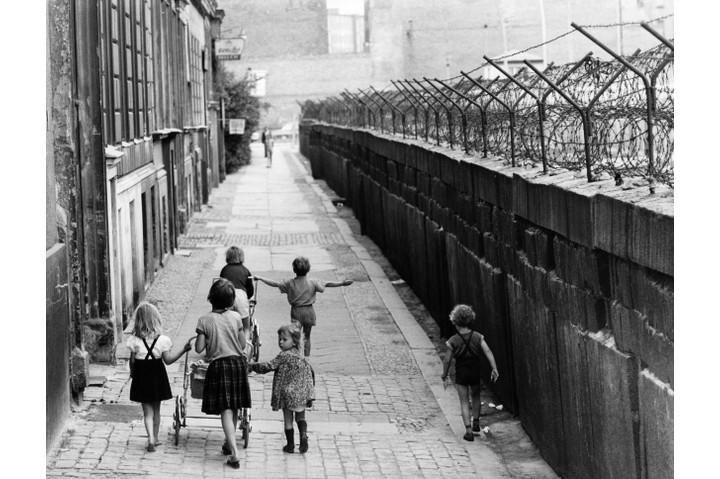
And it just shows the dramatic efforts that we made to make sure that there was not some spark that would trigger World War III. Had we reported that a Soviet soldier did something similar, the same thing would have happened to him. He would have vanished.
But now we’ve become really quite reckless with the way that we talk about nuclear weapons. Just recently there was a Republican Senator Roger Wicker [from Mississippi] and he’s very senior on the military committee in the Senate. And he said we should not take off the table the idea of putting American troops on the ground and using nuclear weapons. And he was saying, we should be willing to consider a first use of nuclear weapons.
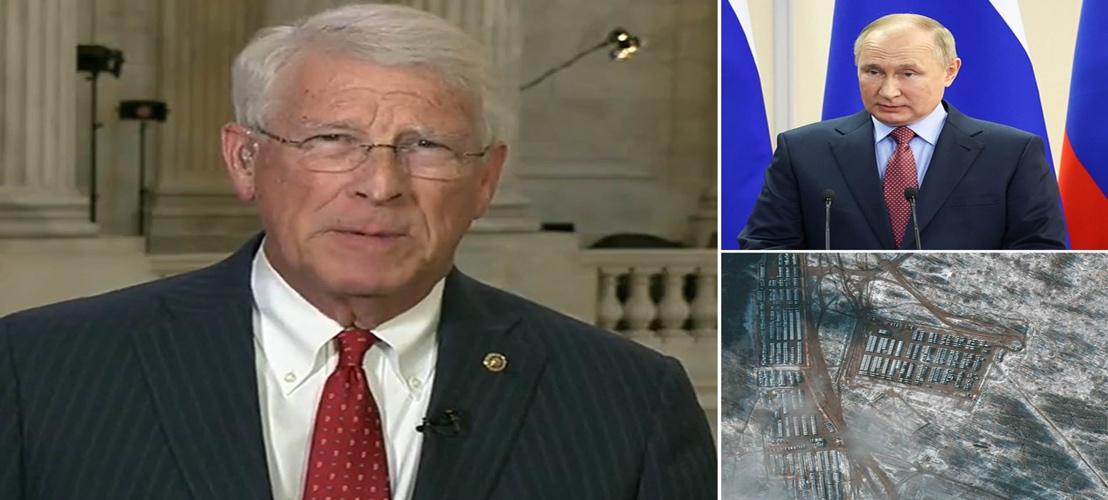
And what he’s talking about is that we should be willing to consider launching a preemptive Pearl Harbor-type strike on Russia with Americans being in the shoes of the Japanese, launching the attack. I think that is insane. It is [also] immoral. It’s a terrible thing for any American to suggest the first use of nuclear weapons.
Jeremy Kuzmarov: Thanks. I feel the same way. And maybe before getting into the current conflict and dangerous situation, if you can say something about, having served with NATO, what your attitude toward the issue of NATO expansion in the 1990s under the Clinton administration is. And how do you think this expansion has contributed to the dangerous situation we have today?
Colonel Black: Yeah. See, here’s the thing; we used to constantly send out messages: “we are a defensive alliance.” Now this is before the fall of the Berlin Wall. When the Berlin Wall fell in 1991, it signaled the dissolution of the Soviet Union; this great empire, literally just fell to pieces. It wasn’t conquered, it just fell to pieces. And the philosophy of Bolshevism, Marxism, communism simply dissipated, it fell apart.
And so what happened is that there was a defensive alliance that the Soviets had—the counterpart of NATO called the Warsaw Pact. With the dissolution of the Soviet Union, the Warsaw Pact disappeared and everybody went home.
And one of the great tragedies of human history is that NATO did not dissolve. It had no purpose to its existence now that the Soviet Union was gone. There was no threat anymore. But you had this enormous bureaucracy with all of these military think tanks. And these people had a lot at stake, a lot of money, a lot of income and so forth.
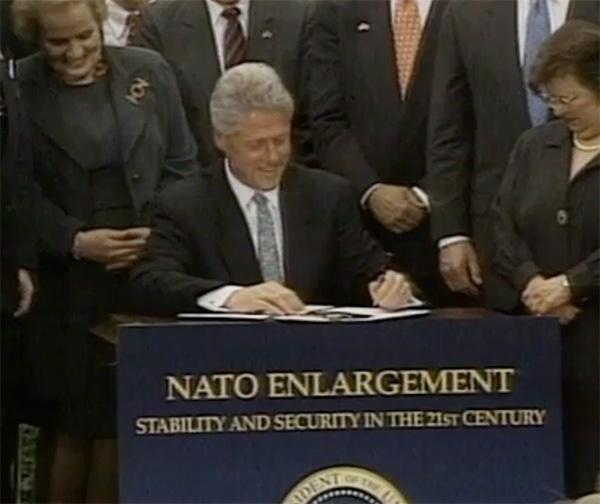
And so NATO continued and it gradually converted to a very aggressive, assertive alliance. And it began this inexorable march to the east.
Now in 1991, there was a thousand mile buffer between nuclear-powered forces in Germany and nuclear-powered forces in Russia. This was a tremendous safety buffer. And what’s happened is we have gradually marched all the way literally to the Russian border.
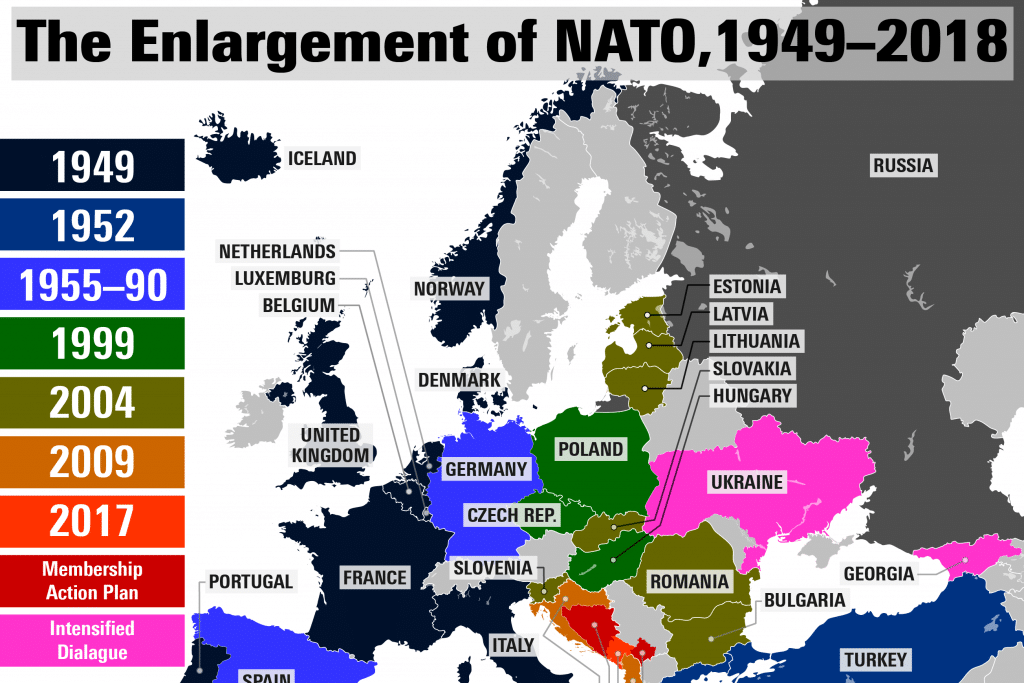
And in 2014, we overthrew the legitimate government of Ukraine. There was a presidential coup and the CIA conspired with counterparts in Ukraine and conducted a violent overthrow of the government. A lot of people were killed in the process.
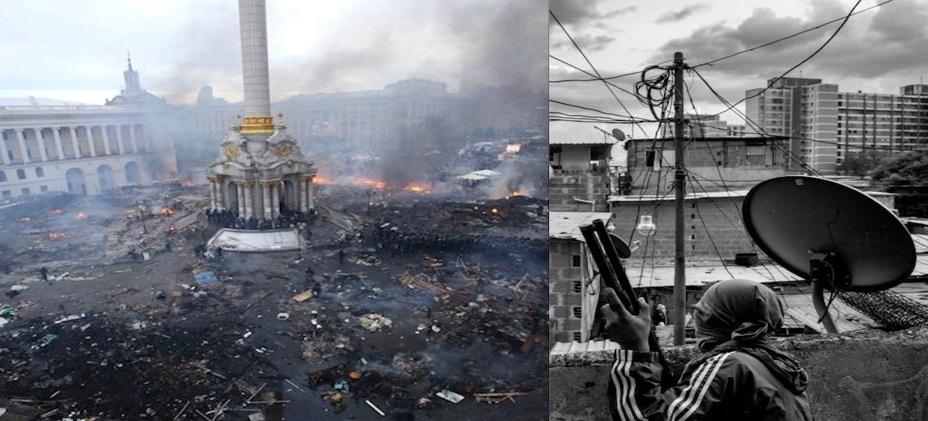
And they installed this revolutionary government. Well, what happened as a result of that is there were a lot of Russian-speaking people in Ukraine, about a quarter of them, and they tend to be focused in the eastern parts, in the Donbas and in Crimea, The people there refused to recognize the new revolutionary government.
They were fine as long as they had a vote, as long as they could participate in the election of their government, but they were not going to join a revolutionary coup. And as a result the Russians were very threatened by what was happening because their Black Sea Fleet was stationed in Crimea at Sevastopol port.
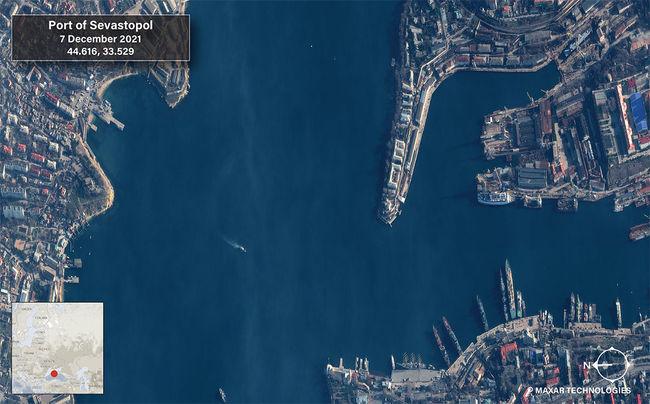
And they were afraid that the new revolutionary government would renege on the 99-year lease that Russia had there. So they moved in now. Crimea was solidly part of Russia, and it had been Russian for 500 years. It is a kind of a historic anomaly that it was temporarily in the hands of the Ukrainians.

And so the Crimean people welcomed the Russians in; they came in quietly, there was not a shot fired. They took over Crimea, held a plebiscite. About 92% of the people voted in favor of becoming a part of Russia. Donbas was a little bit different. They declared their independence from Ukraine.
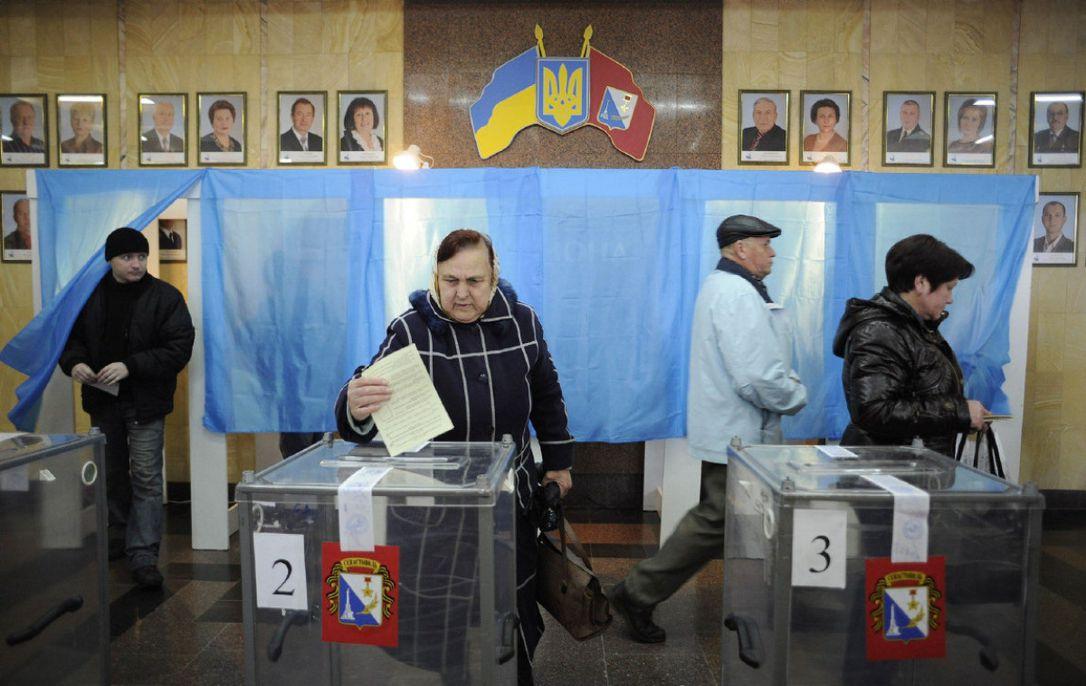
And that’s really the source of the continuing problem. NATO and particularly the United States and United Kingdom flooded enormous quantities of weapons. And they also sent troops in some cases on the ground in Ukraine, training Ukrainian soldiers to kill Russians right across the border.
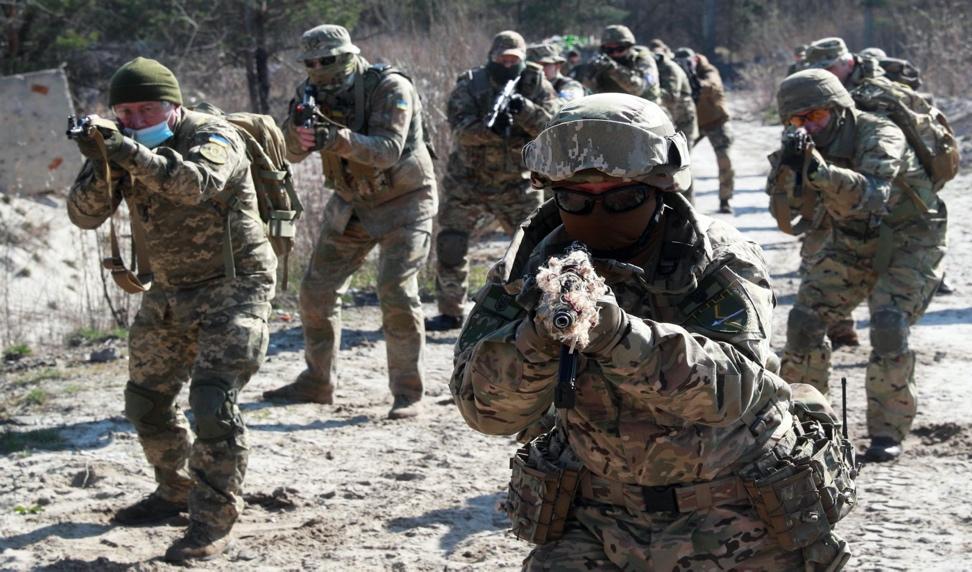
And I think there was an intent virtually from 2014 to start a war with Russia. And eventually they got the Russians backed into a corner where they were forced to fight, but before the war broke out, Russian President Vladimir Putin and the Russian government made desperate attempts to achieve peace.
They actually put written peace proposals on the table with NATO, trying to establish a zone that would be de-militarized. And that was rejected out of hand because NATO fully intended to compel Russia to force them into a war, which they did.
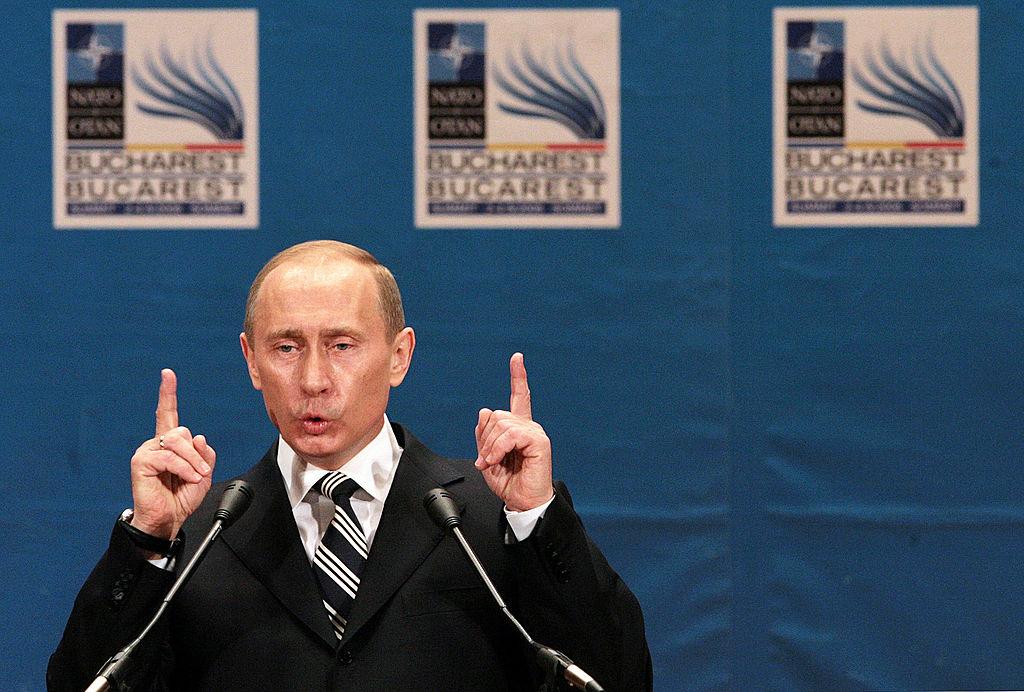
Jeremy Kuzmarov: And what do you think the motive is? Why did they want to force Russia into war? This could trigger a world war.
Colonel Black: It’s a very good question. I think that there are several reasons. There’s tremendous sums of money at work here. Congress has just appropriated $40 billion. If even a quarter of that went into the politicians’ pocket, you’d be talking about $10 billion. And my guess is that a good bit more than that, a quarter will go into Swiss bank accounts.
So there’s money. There’s also this tremendous institutional pressure from NATO, from retired generals who have gigs with different TV stations, all of these people making money on it.
They’ve got to have an enemy. Russia was not our enemy. They were desperate to westernize when the Soviet union collapsed, they wanted nothing more to do with Bolshevism. They wanted to be westernized and we put them off. We did not welcome them as, as part of the West. And the reason was we had to have an enemy or there would be no rationale for the existence of NATO. That was the only reason they became an enemy. Otherwise, they would have been happy to be part of all of these Western organizations and alliances and so on.
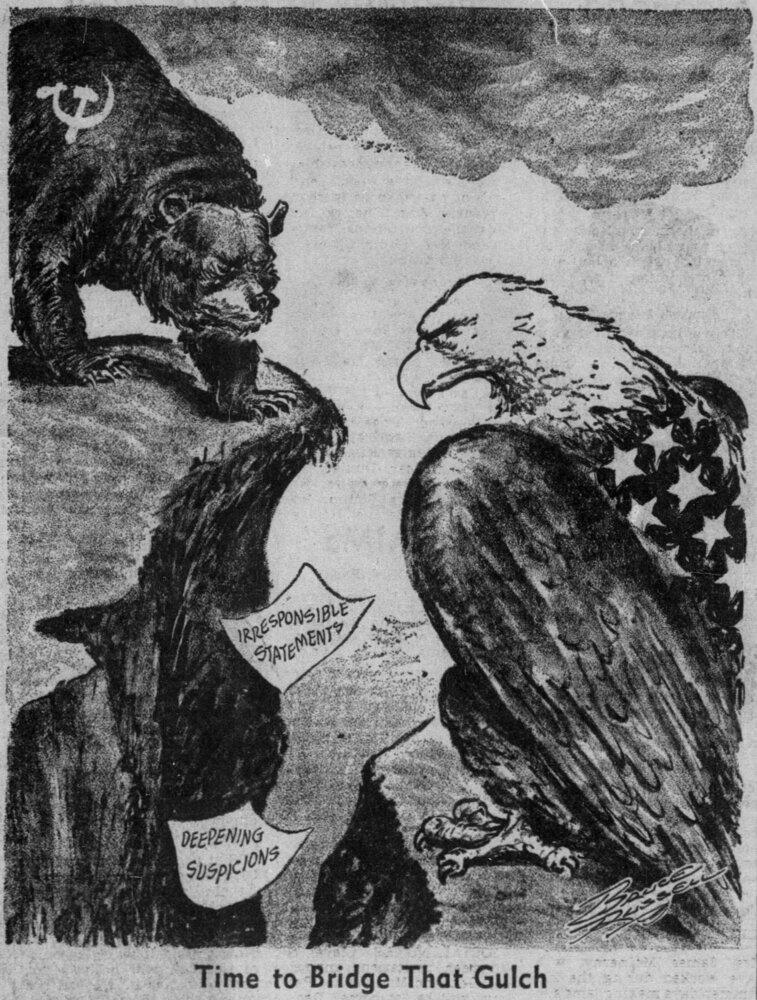
Jeremy Kuzmarov: Good analysis. As far as the war that broke out this February. We see in the media constant references to Russian aggression; that Russia is the bad guy, the evil doer. How do you see it? Is Russia responsible for the war; you’ve already been suggesting that they were provoked into it. Could you elaborate on how the media misleads the public about who started the war; who’s the bad guy?
Colonel Black: Yeah. to bring it fairly current. When the Donbas—an industrial area not too big but attached to Russia—declared their independence, the Ukrainians began to attack the Donbas. They began to shell it and so forth. And once the West had built up this vast arsenal of weapons, they assembled a tremendous army. Now the army was a quarter of a million people surrounding the Donbas. Russia was not prepared for war. They hadn’t mobilized their reserves.
They were holding some exercises on the border. Then the CIA announced that there were 150,000 Russians on the border. And then eventually before it was all over, they raised their estimates as high as 190,000. So you’ve got a quarter of a million Ukrainians about to attack the Donbas. And you have 190,000 Russians, so the Russians are outnumbered.
Almost any Lieutenant can tell you there’s a standard formula: If you’re attacking, you have to outnumber the other side three-to-one at that location where the attack is held. Russia was in this desperate situation where they had lost a lot of time trying to arrange a peace deal with NATO, but they were looking and they were saying any moment that this vast army of Ukrainians is going to attack the Donbas.
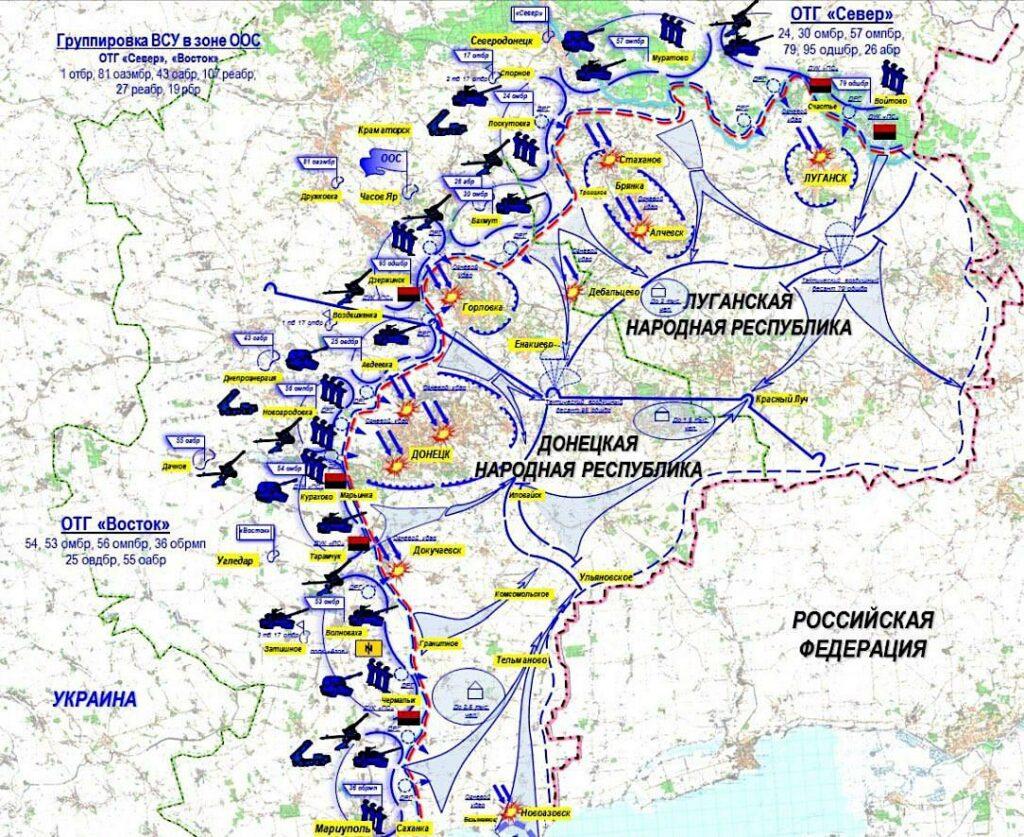
Russia attacked with less than a one-to-one ratio. So instead of having a three-to-one advantage, the Ukrainians actually had a significant numerical advantage over the Russian attackers. But president Putin felt he could not delay because if he delayed then the Donbas and all of its Russian people would just be crushed.
And so he was forced to attack at a very awkward inopportune time. He had delayed until the, the weather was turning warmer. Now the cold winter favored an armored attack by the Russians. But they delayed and delayed in hopes and prayers that NATO would listen to them.
And so they had to attack at a disadvantageous moment. So yes, they did attack, but they attacked to preempt a much larger attack by the Ukrainians.
Jeremy Kuzmarov: Former Marine intelligence officer and WMD whistleblower Scott Ritter has come out in the last day or two, and said that initially he thought that the Russians would be able to win quickly, but now he’s thinking that all these weapons that the U.S. and West is shipping are having an impact and this thing might drag on. What’s your assessment of the military situation now and Ritter’s comments?
Colonel Black: I’ve not seen his most recent comments. I’d seen his earlier ones. I think that it is a very serious struggle in a covert sense. NATO is on the ground, fighting this war along with Ukraine. The Turkish press released the fact that, with the Ukrainians who are now bottled up in the steel plant in Mariupol—they’re sort of the last holdouts—that there are 50 French officers who are also there. These are not some sort of mercenaries. These are regular French officers. Two days later, the United Kingdom issued a press release and said there are also 20 Brits who are caught there. It wasn’t clear whether they may have been Blackwater-style mercenaries. But we also know; there have been press leaks that disclosed that Polish, regular Polish units are active within the western part of Ukraine.
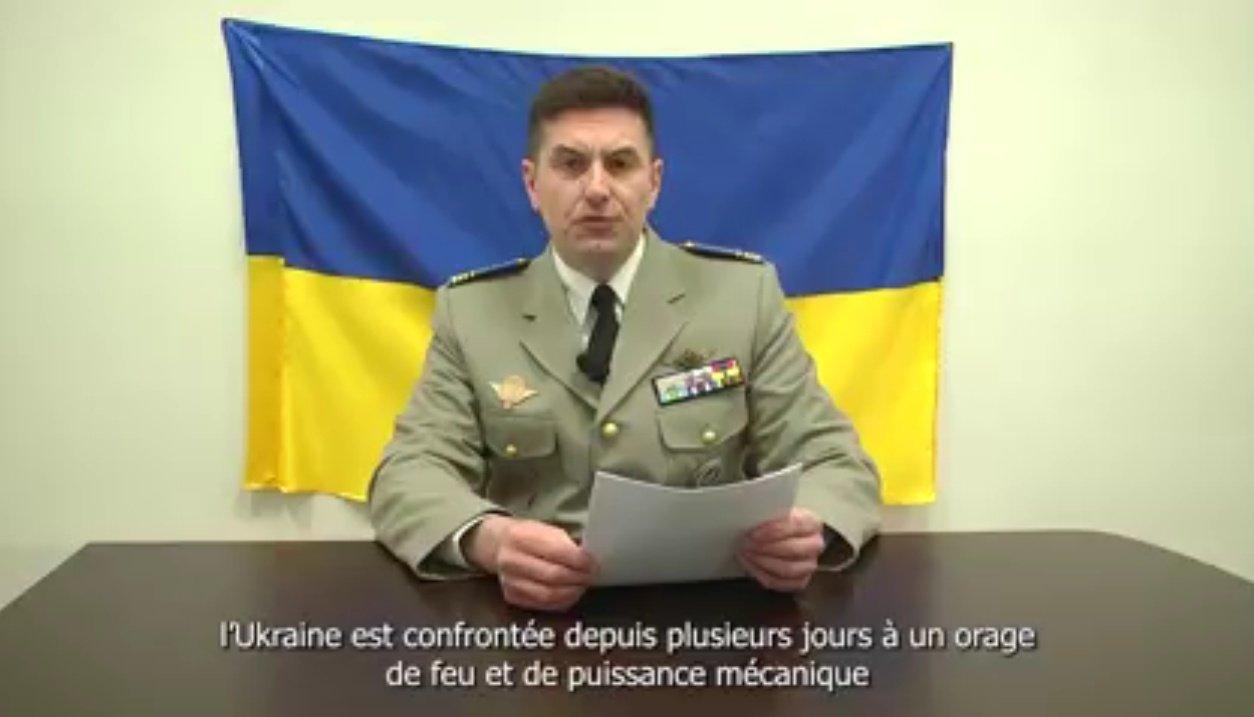
It was not long ago that President Biden was furious because there were press leaks. And this was all discussed in The New York Times. Biden was furious because it had been leaked that the United States was involved in the sinking of the flagship of the Russian Black Sea Fleet called the Moskva, a cruiser that went down.
It was carrying 500 sailors. Chances are that many of them went to the bottom with the ship.
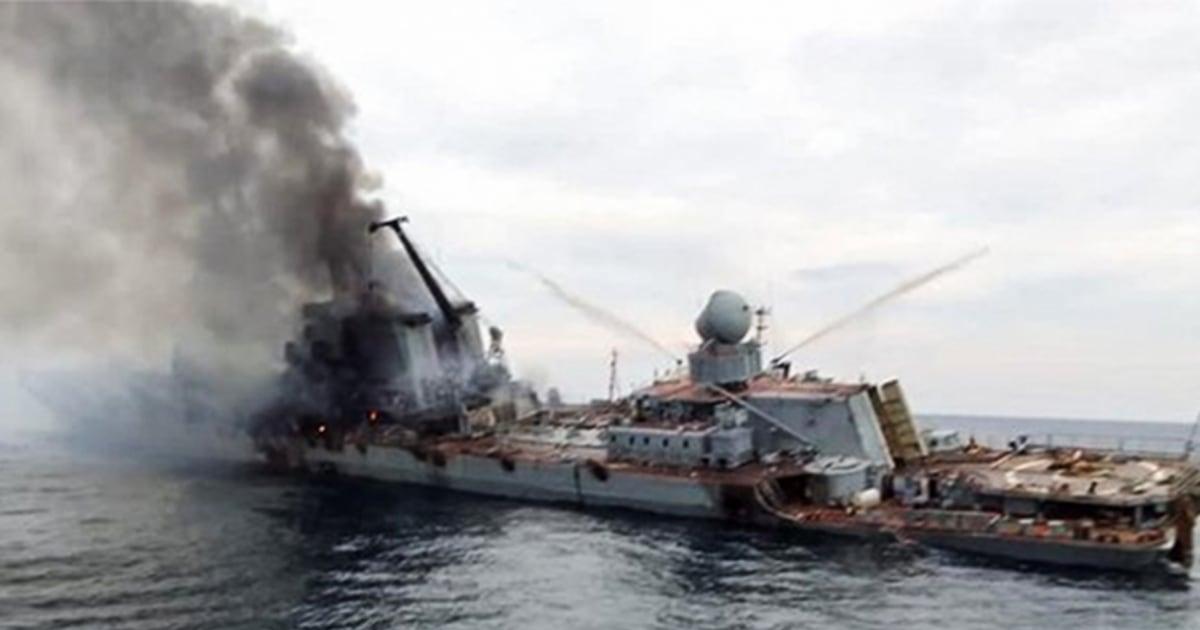
The United States was also working with Ukraine in helping to assassinate 12 Russian generals.
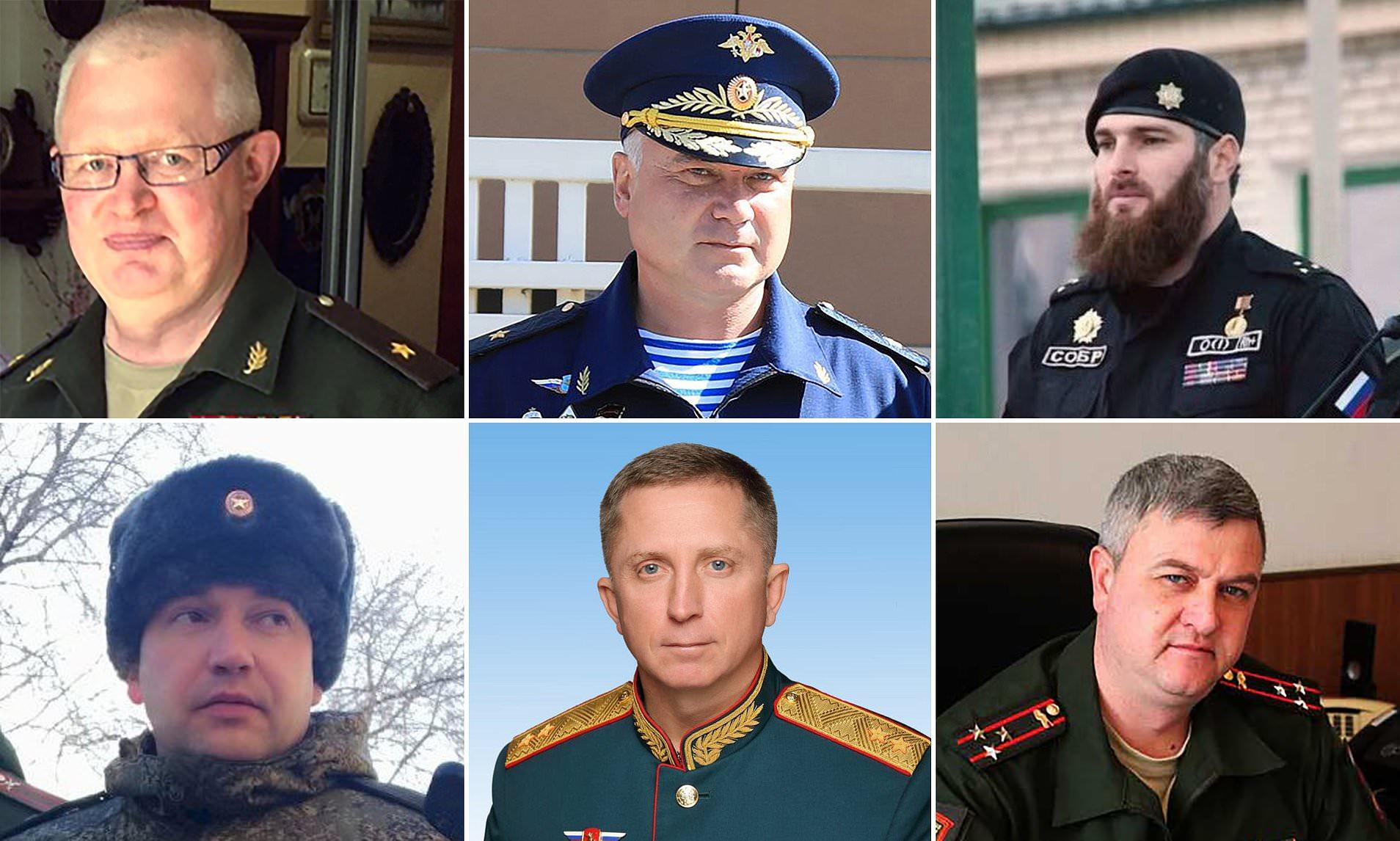
Now as far as the sinking of the flagship, which to me is the most dramatic thing, there were two cruise missiles, anti-ship cruise missiles that sank the ship.These are extraordinarily sophisticated.
These aren’t like the Javelin missiles that you just pass out to a bunch of people. I have no doubt that NATO forces controlled those from day one to the final employment. It’s not the kind of thing you’d just give to some army that happens to be fighting a war and, and hope that they’re not gonna turn around and sink an American aircraft carrier with them.
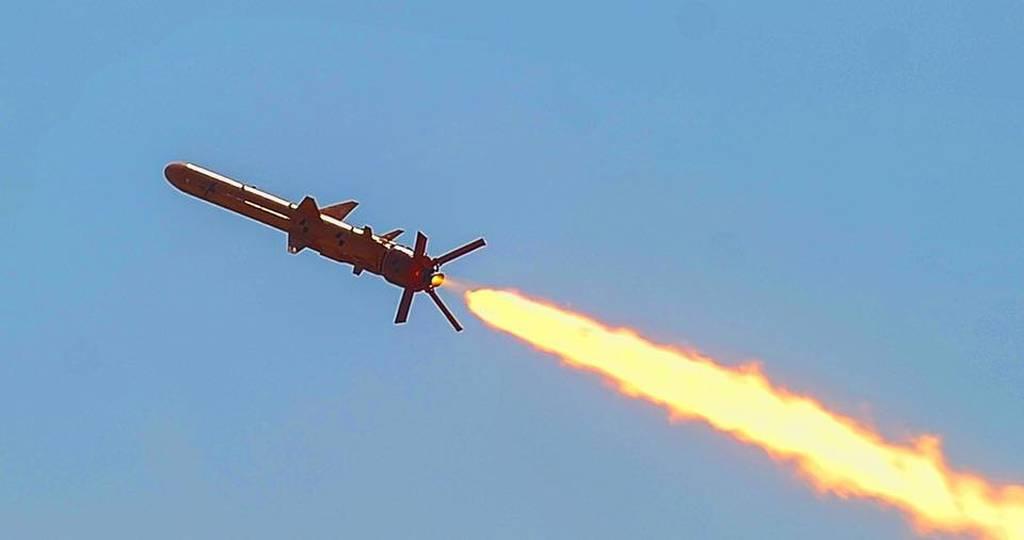
So I don’t think we ever released [or] relinquished control of them for a moment, which means that I believe that we fired the missiles that sacked the Russian warship. This is an act of war. It is extraordinarily reckless. The risk of igniting a World War III, which most commentators agree is likely to evolve into a nuclear conflict. The chances of that from sinking a major foreign warship are extraordinarily high.
We’re at a 1914 moment [on the eve potentially of a world war like World War I]. World War I was triggered because an assassin shot the Archduke of Austria-Hungary and his wife. So two people were shot and because of all these interlocking alliances and so forth, before it was over 14 million people had died in one of the greatest wars in history. It began with two people.
You can compare that with what we’re doing today. Compared to that the assassination of two people is practically nothing; it’s almost trivial. We’re sinking major warships, we’re assassinating a dozen generals. And somehow pretending that everything is going to work out all right. [In reality] it’s a very scary situation.
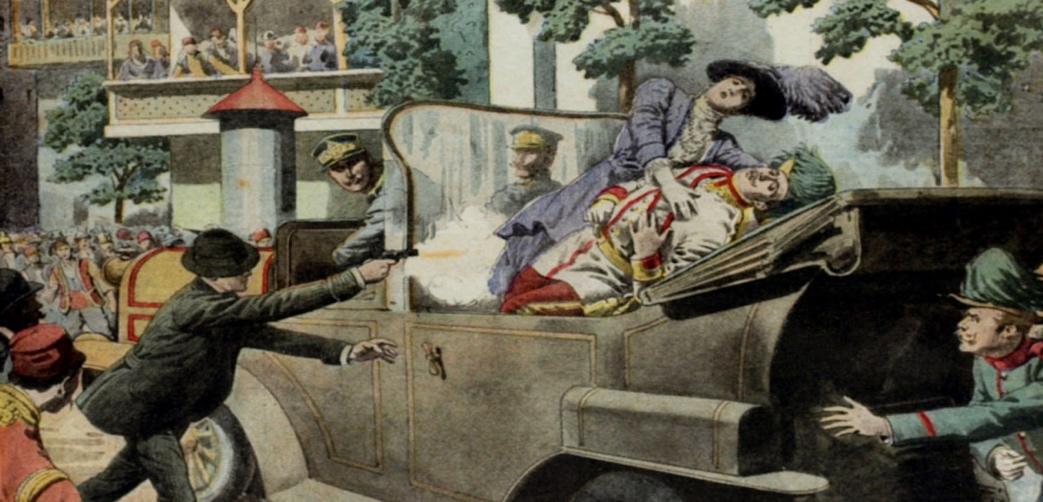
Jeremy Kuzmarov: Can you comment on war crimes in the Ukraine conflict. I don’t know if you’ve studied that. Our media is currently replete with allegations against Russia. My sense is that Russia has committed some war crimes, but they’re not reporting on Ukrainian war crimes. Your feeling on that?
Colonel Black: Well, let me comment on that. One of the most major war crimes was the apparent shooting of people in Bucha (suburb outside Kyiv). Bucha was one of the areas up in northern Ukraine that was occupied by Russian forces for, I don’t know what, six weeks, two months, before eventually the Russians withdrew. When they withdrew, the mayor of Bucha went on air and he was just joyous. He says, this is wonderful; we’ve liberated the city, everything is fine. When the Ukrainian army came in four days after, bodies appeared along the roadside.
And now, I’m looking at this as a prosecutor. I was a career prosecutor in the JAG Corps and at a high level. I look at what’s the evidence? Well, it’s rather peculiar. You had a Ukrainian military vehicle going down the road and it’s photographing and here would be a civilian. Lying by the side of the road with his hands bound behind his back, you go a hundred yards past or a hundred feet past, and there’d be another body and another; for a considerable distance, you saw these bodies there, and for a prosecutor, it raises a number of questions.
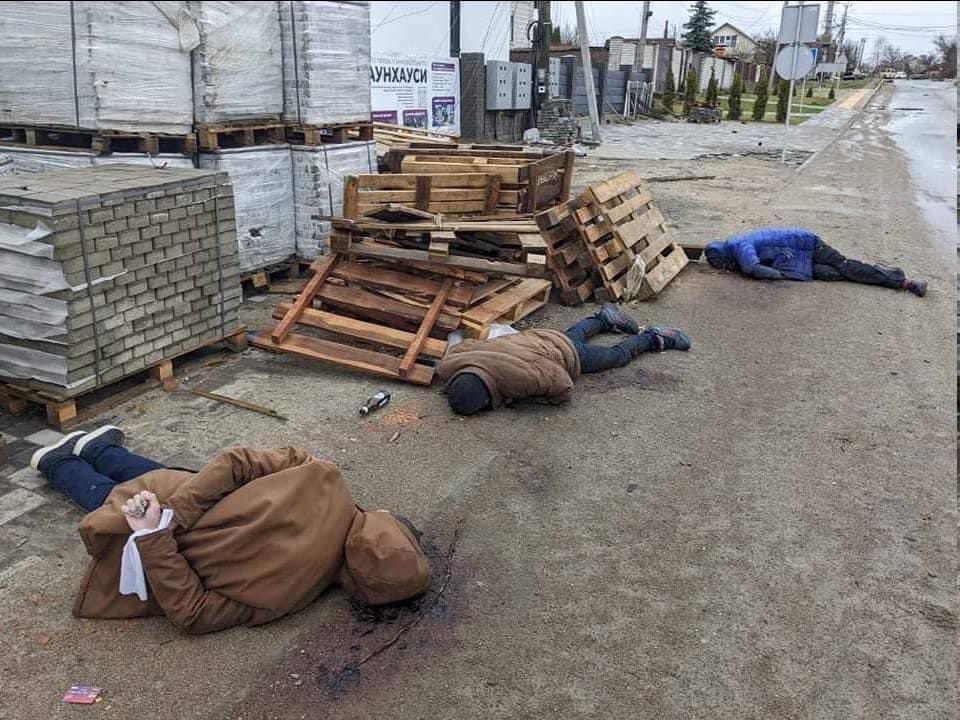
It raises the question. What exactly do we know? We may know that they were actually dead bodies. I’m not sure, but I kind of conclude that they are, we don’t know where they were killed. We don’t know who they were. We don’t know why they were killed and we don’t know who killed them. We do know that the Russians had no apparent motive for doing this because they had occupied the area for some time.
And these people were apparently freshly killed. So why did the bodies appear four days after Ukrainian forces occupied the area? Now as a prosecutor, you know, I’ve handled, any number of cases, [including ones that] brought in the FBI and criminal investigation division and the British bobbies, or whoever’s doing it.
And I’ll say, well, take a look at this. You have sort of a hunch. You say, well, let’s put all this, the motive, opportunity and so forth. Take a look at whether the Ukrainian forces didn’t move in there. And identify people who had cooperated with the Russians during the occupation and gun them down and place those bodies along the road.
Now, why would I suspect that? Well, for one thing, the civilians were wearing armbands to try to distinguish themselves so that they wouldn’t get caught in the crossfire. There were two styles of armbands for people who were openly pro-Ukrainian. They were blue armbands for people who just simply want to be out of the war. Others wore a white armband.
As you looked at all of the bodies along there, they all had white armbands. If it was the Russians, why didn’t they all have blue armbands? Why weren’t they all the people who were openly pro-Ukrainian, but civilian. But that wasn’t the case. If you were going to slaughter a bunch of people, for some reason, wouldn’t you have them in a building or something and just gun them all down there, why would they be intermittently dispersed along a roadway?
That doesn’t happen? People whose hands are zip-tied behind their backs. They’re not just strolling along the thoroughfare. Somebody’s dropping them off there. You see, if you just think about the logic, why were the bodies suddenly there four days after the departure of the Russians?
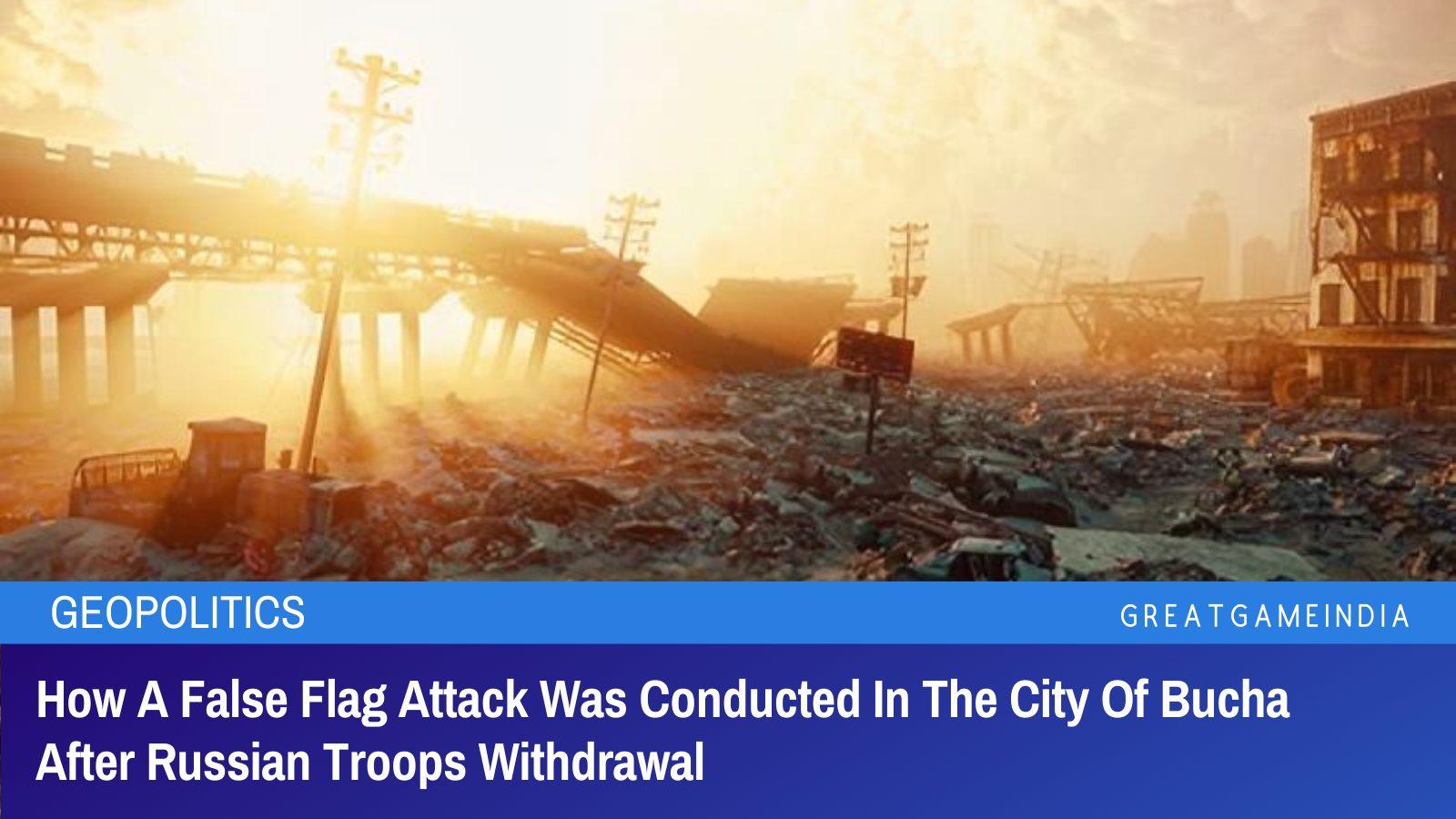
Why did the mayor come out and say, we’re so happy. We’ve liberated the city from these barbarians who killed people on their way out of town, how come suddenly the bodies appeared four days later after the Russians had left. So I can’t tell you for certain what happened, but I can tell you that as a war crime, it is a very suspicious one.
Now I’ve seen fairly clear evidence of two war crimes on the Ukrainian side. And I’m not saying that there may not have been some on the Russian side, but there is one instance where there was a video of a man who ran a Ukrainian hospital. It was the administrator [Gennadiy Druzenko] and he was boasting proudly about giving orders to all of his doctors. That when they treated wounded, helpless Russian casualties [whom he referred to as “cockroaches”] that they were to castrate them.
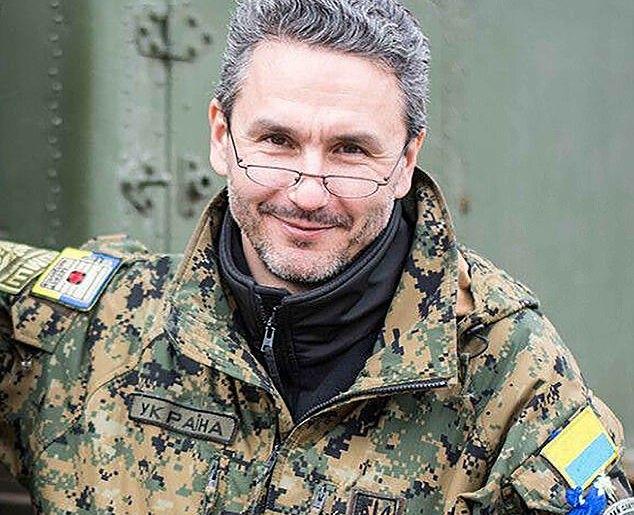
This is one of the most hideous war crimes I’ve ever encountered. And he was quite definitive. He said we give the strictest orders, bring them in, castrate them. So that was one. There was another video and it runs about seven minutes and it was a POW reception point where the Ukrainians were bringing in captured Russians. And they would simply gun them down as they came in.
See also video here: https://www.youtube.com/watch?app=desktop&v=qhUzbI-fphw&bpctr=1652991320
At the beginning of the video, you have this Ukrainian soldier and he’s walking and he’s explaining that they were shooting the Russians as they would come in. And some of them were hideously wounded. They would hit them in the legs. They were chewed up like hamburger meat.
There was one really nice looking kid—he looked like you’d be happy if your daughter married this guy—he just looked like a great kid and he’s lying there. He’s dying. And the Ukrainian soldier kicks him in the leg and his leg is hideously torn to pieces.
And there were a couple of them that they put plastic bags over their heads, so they couldn’t breathe and their hands are zip-tied behind their back. So they couldn’t get the bags off. And sometimes they don’t open up the bag just to show the face of the suffering Russian. Towards the end, a van pulled up with three captured Russian soldiers that were not wounded. And without the slightest hesitation, as they’re coming off, they just gunned them down. The first two have their hands zip-tied, they’re helpless and they just shoot them and they fall.
And the third one drops to his knees and begs for his life and they shot him down while he’s there now. And these were reported to the Ukrainian government and it said, yeah, we’ll take a look at it. You know, we’ll see. But they obviously have very little interest or concern about war crimes that are established.
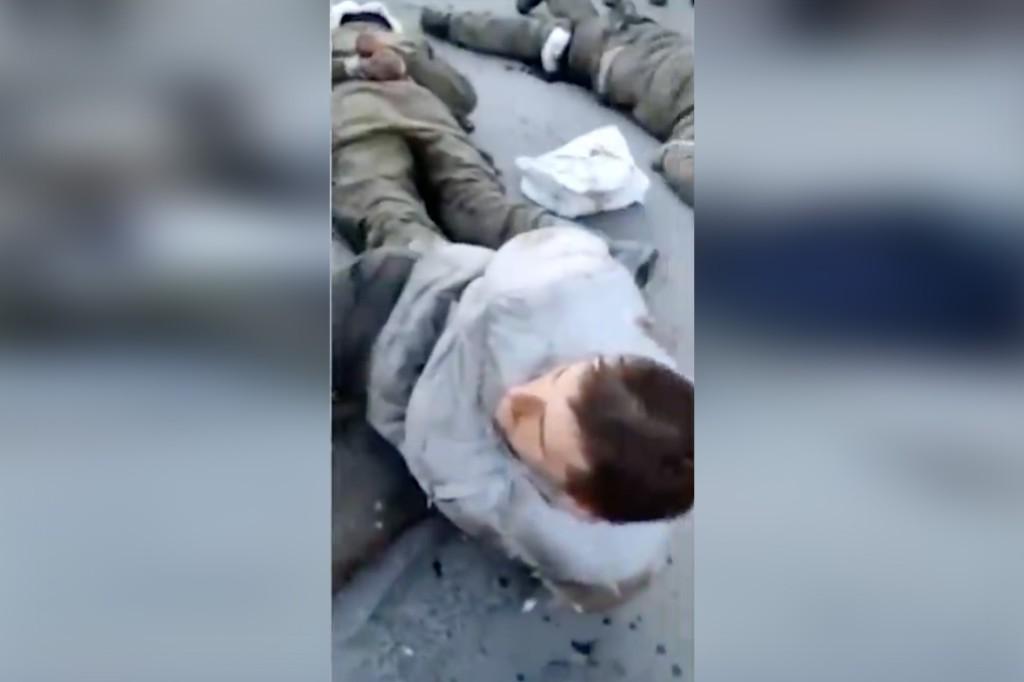
You hear many claims that the Russians are firing into civilian areas and you see these buildings that are blown down and that kind of thing. I was a forward air controller in Vietnam. I had bombed many places where the Viet Cong fought that were built-up areas.
There were inhabited areas. And the problem is you, you don’t have a choice of where you want to fight your enemy. And the Ukrainians have been equipped with sharpshooter rifles, very high power, 50 caliber rifles that have been devastating for the Russian. And the Russians tried to go in without using a lot of supporting arms, which proved to be a big mistake.
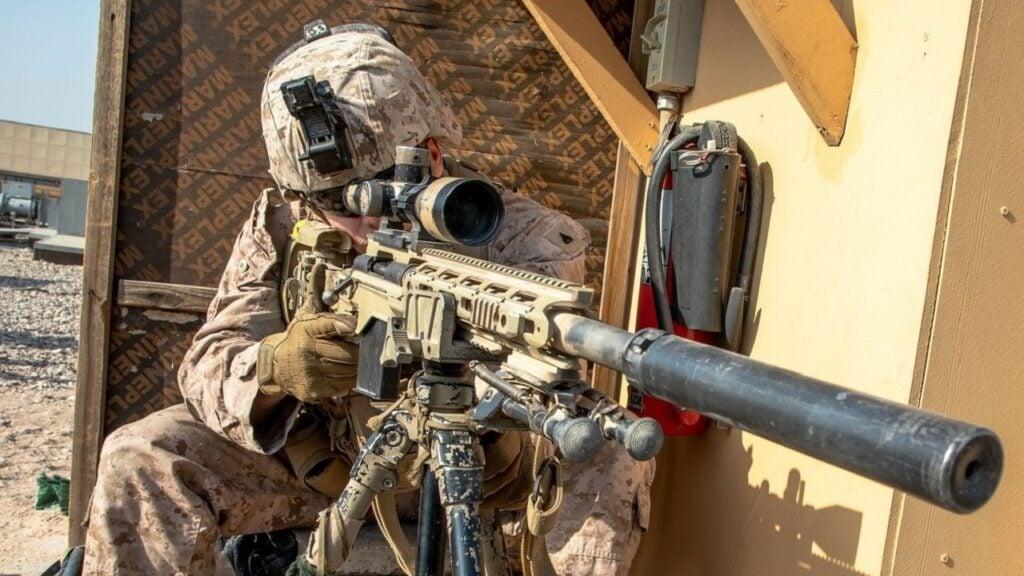
And eventually they just use the tank and artillery fire, and they would, they would blow down buildings. This is classic. You saw it in the Second World War. If you ever look at those scenes of Germany, all the cities are just blown to rubble because that’s where the soldiers fight. They fight from building to building.
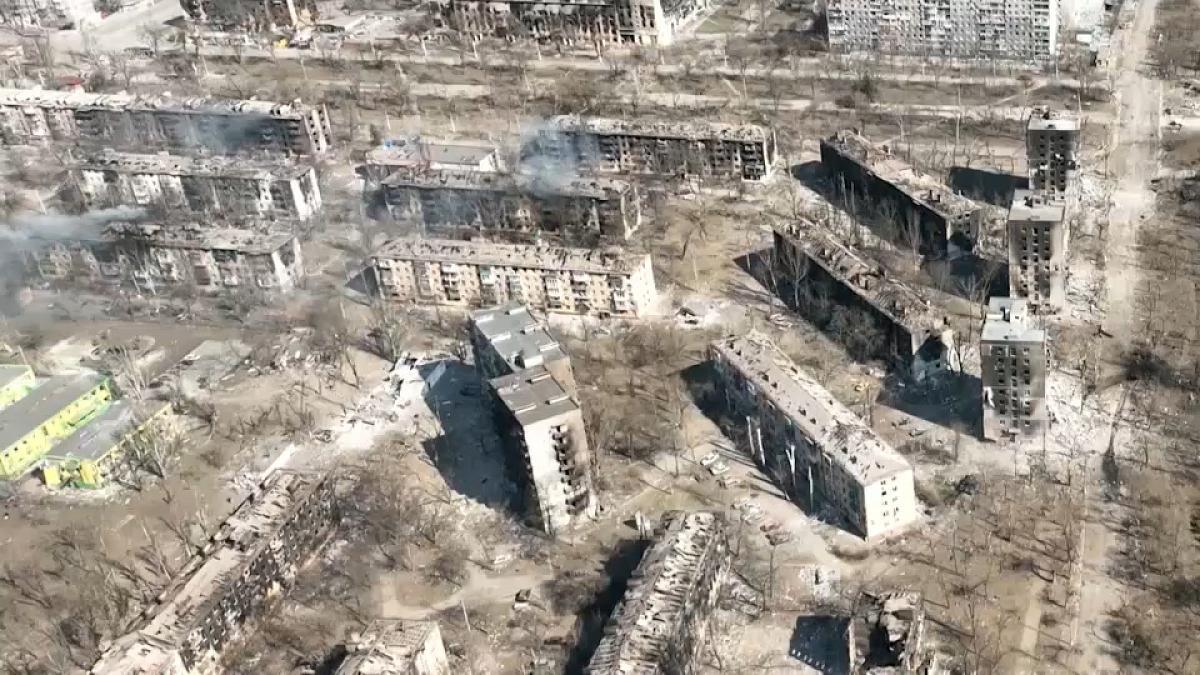
So that’s not a war crime when you do it, we could go into it more, but that’s sort of an overview. I do not see the Russians as having any policy designed to commit more crimes. When you have a war of this dimension, you undoubtedly are going to have people who do things they shouldn’t do on both sides but that is my impression as a former prosecutor looking at crimes.
Jeremy Kuzmarov: Thanks. That was a very good analysis. It begs the question that should be of grave concern here in the United States, given the billions of dollars that we’re providing to the Ukrainian military, which as you suggest I think very convincingly, is committing quite clear war crimes. There’s an article from The New York Times in front of me too from today, and the headline reads: “McConnell Works to Counter His Party’s Isolationist Wing.” You identify yourself as a Republican, correct?
Colonel Black: I wouldn’t call it isolationist. The United States has military bases in 750 locations, 80 different countries. You compare that with a combination of the Chinese and the Russians; the U.S. and UK foreign bases outnumber their foreign bases 22 to one.
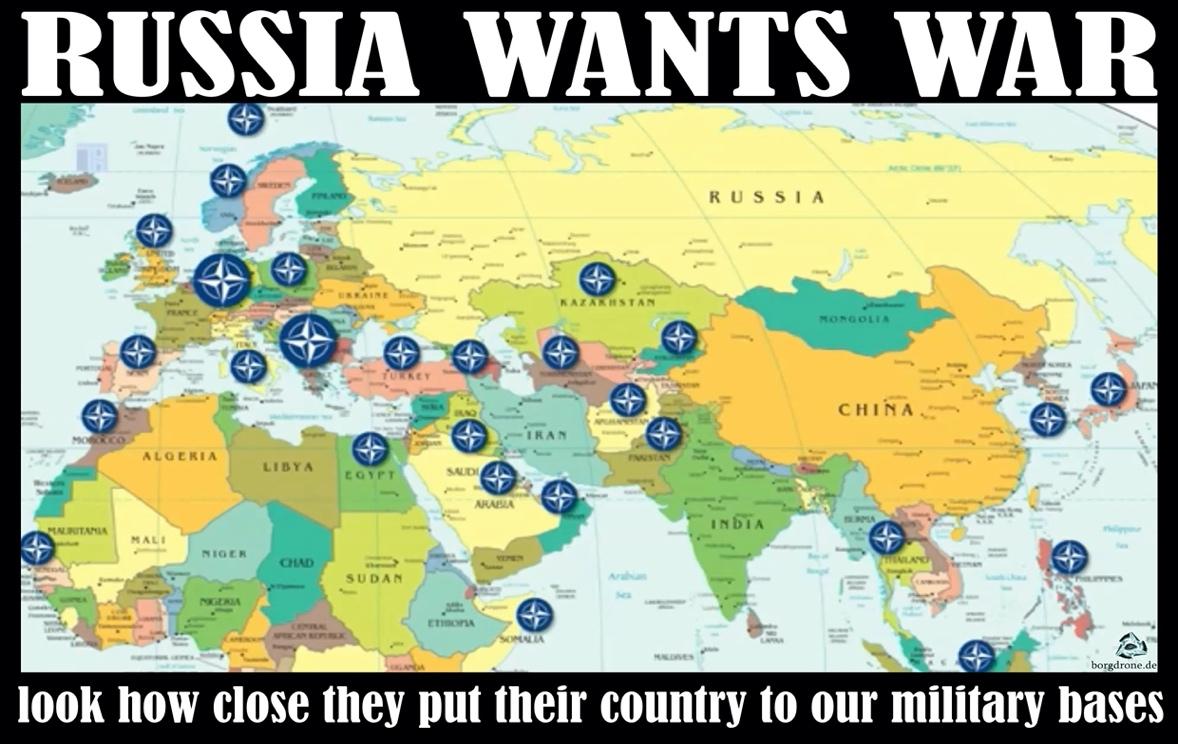
So to call somebody who calls for some moderation isolationist—when we outweigh the other side 22 to one—that makes no sense. The Russians probably have 25,000 people overseas, total. We have vast divisions of troops and air wings and so forth. That’s not even counting all of the people on aircraft carriers. China has an aircraft carrier. Russia has one. They’re not any big deal there. They’re not like our aircraft carriers, which are a very big deal.
So yeah, they throw around this term isolationist when really we’re moderates on foreign policy. We are people who are trying to avoid a third world war, trying to avoid a nuclear confrontation.
And we’re also, I would say, we’re not part of some organization, but I think people on my side are people who do not believe that the world benefits by being controlled by one central government.
And certainly that is the plan. And that’s the direction that things are emerging. I think there’s a great benefit to having individual sovereign countries because people respond to more local government. People who are members of the European Union have absolutely no influence over the EU.
The EU has them doing things that they would never do if their country had to answer to them directly. So, I don’t believe in a centralized government. I believe in the U.S. Constitution with a federal government, I think it’s a good thing. Above all else, I don’t want to see young men just ground up and their lives destroyed and ended just for the glory of a one world order or to line the pockets of wealthy, retired four-star generals and people in think tanks and NATO bureaucrats.
This war in Ukraine could have been stopped easily by making some reasonable accommodations for Russian security. If you go back to the Cold War, Austria was one of the occupied countries at the end of World War II. And for reasons I don’t entirely understand there was a coming together of minds and the Soviet Union and the allied occupying powers all made an agreement and they said “we’ll move all of our troops out of Austria.” If you’ll move yours out on condition that Austria changes its constitution and says, number one, we will permanently be a neutral non-aligned country, and number two, we will prohibit any foreign troops being stationed in our country.
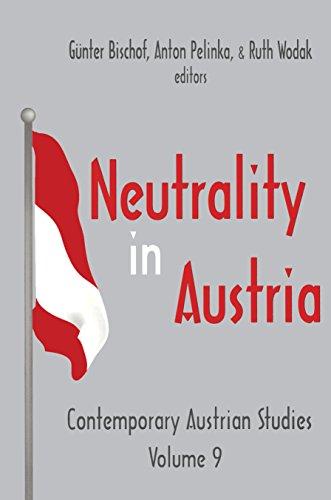
That was the model that should have been followed in Ukraine.
It would’ve been a tremendous benefit to Ukraine because they wouldn’t have had to militarize and be fighting wars. It would have given security to Russia and it would have provided this all-important nuclear buffer, a buffer zone because Ukraine is a large country. And instead of having nuclear powers toe to toe, they would have been separated.
And that would have been the perfect solution—the Austrian model, which remained all during the Cold War. At the time, you had this line between East and West Germany that there were thousands and thousands of tanks and artillery pieces; millions of troops all geared up constantly training for war.
And then you had Austria and in Austria, people were celebrating and they were joyous and there was happiness. I went to Austria at the height of the Cold War. And it was like you were going to a different planet. All of a sudden, people are at Christmas time; the cities are just sparkling with decorations and things, and people are going to the opera and people are just joyous and happy they were out of the war.
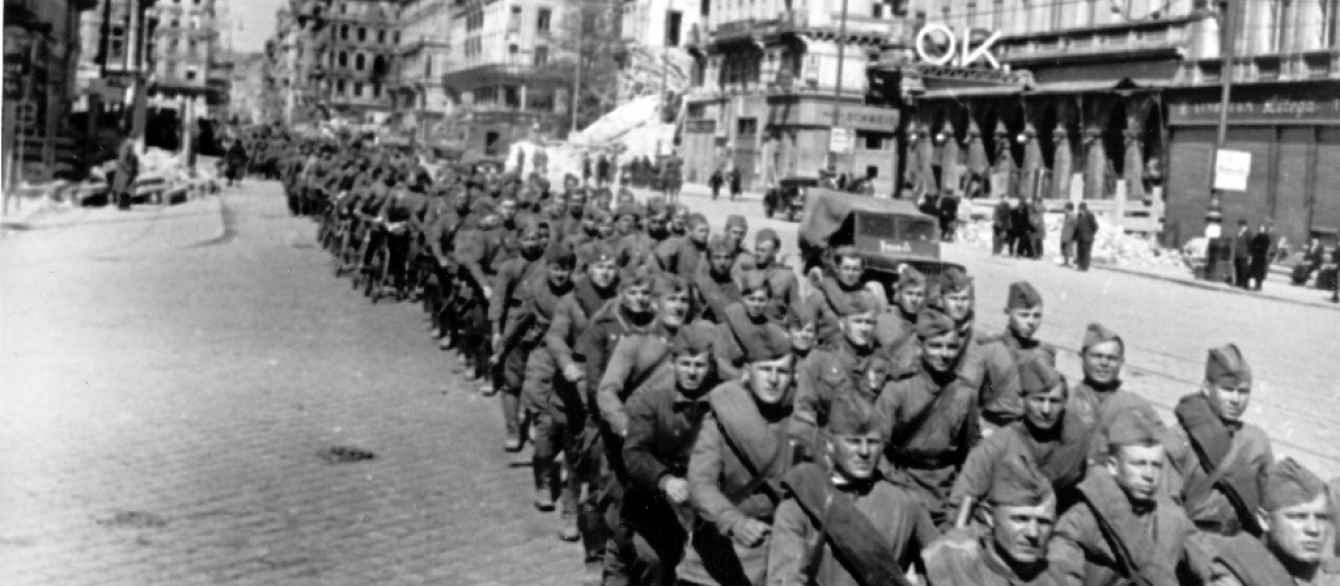
We could have done that. Ukraine could have had that too. It could have been that the golden era for Ukraine, but instead we’ve used them as a place that the oligarchs can suck money from. And the people can be ground up in war. And it’s just a shame that we’ve taken the direction that we chose.
Jeremy Kuzmarov: I wanted to also ask before we go about Syria. I know you’ve been very much involved with that conflict and very knowledgeable about it. So maybe you can give your assessment from today’s point of view and provide a comparison with Ukraine. The U.S. has poured so many arms into a kind of a black zone in Syria as well as Ukraine. So how would you compare Syria with Ukraine?
Colonel Black: Yeah, there are a lot of similarities because we use the media dominance to have a single narrative come out of Syria just as we have with the Ukraine war.
What happened is that there were some demonstrations occurring in Syria as a result of this so-called Arab spring, which I suspect was partly an intelligence operation by the CIA.
During this and before the war ever broke out in Syria, the CIA landed operatives on Syrian soil to link up with Al-Qaeda and other terrorist elements and to establish channels for arming the terrorists. From that time, literally until this moment, as we’re speaking, the United States has been an unwavering ally of Al-Qaeda.
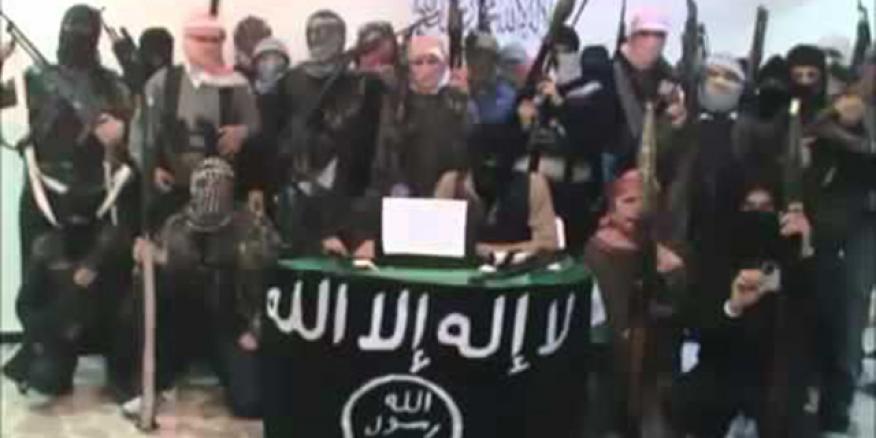
For people who don’t remember, Al-Qaeda is the group that hijacked the jets that were flown into the Pentagon and Twin Towers on 9/11. After that, we were staunch allies and have remained staunch allies to this day. The remaining Al-Qaeda are [now] jammed up in a pocket in Idlib province, Syria.
The Russians did not and do not like to get into wars. They’re not a war-like country—like the Soviet Union was. And so this was their first significant overseas deployment. They waited until four years after the war started to even get involved.
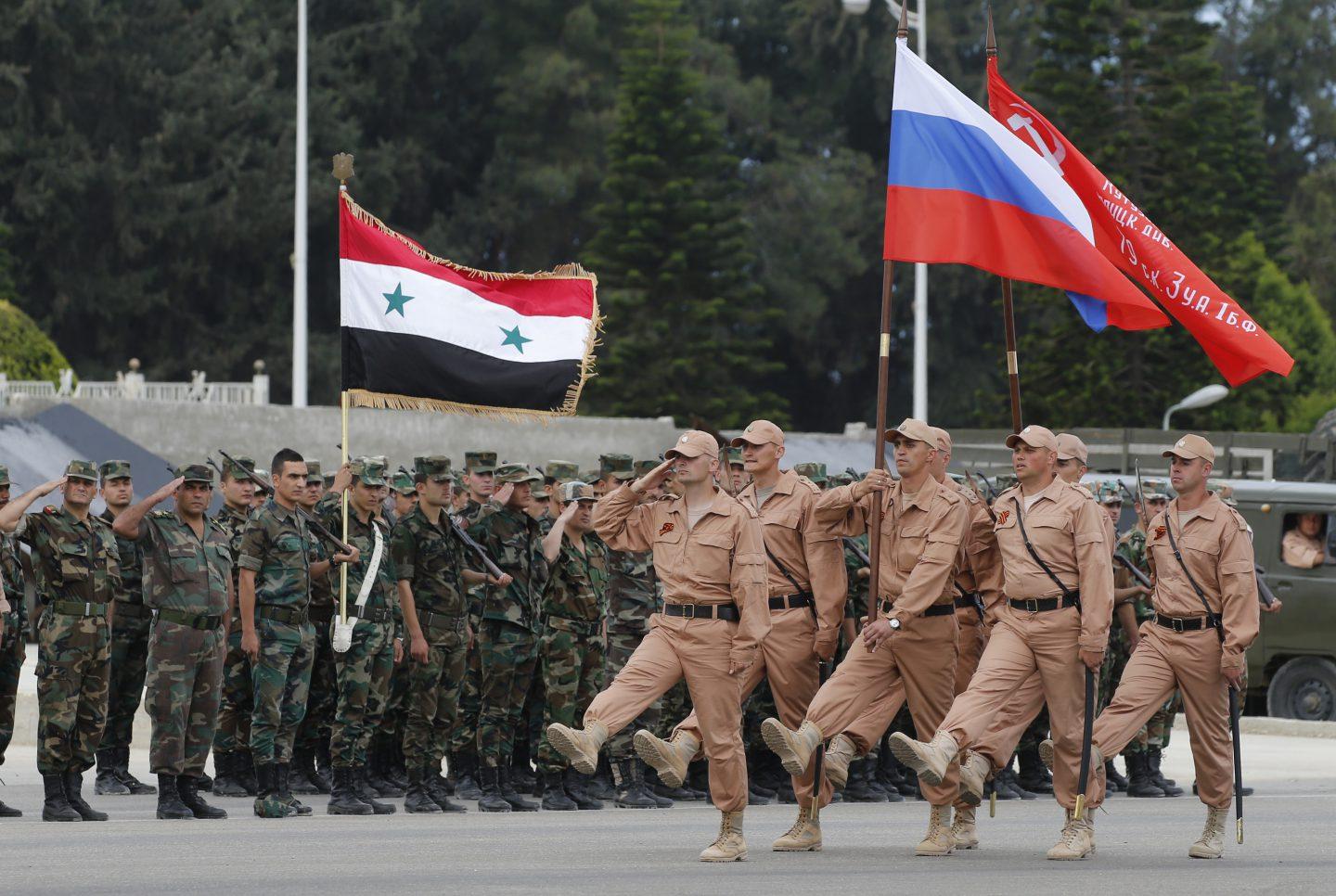
And the United States was heavily involved under operation Timber Sycamore run by the CIA. They had warehouses over the border in Turkey and they provided weapons. Anti-tank missiles. To Al-Qaeda and to the Free Syrian Army (FSA). And then the weapons would flow to ISIS. We didn’t directly supply ISIS, but we made sure there were plenty of weapons for ISIS.
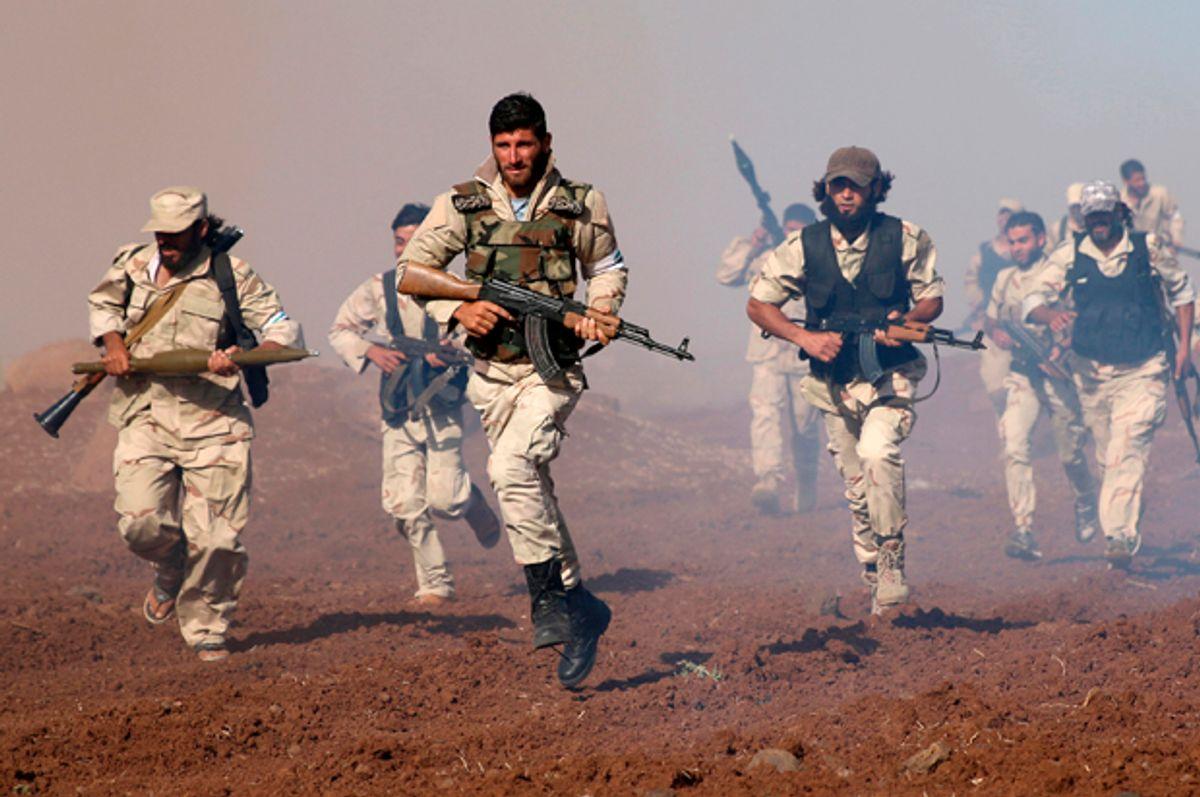
And we’ve had a love-hate relationship. We’ve fought ISIS very genuinely, but in other cases, we have enabled their activities and sometimes we’ve actually stepped in on their side with air power. But it is totally a proxy war. It is totally an Islamic terrorist war and it is a war without the slightest human compassion.
One of the, one of the policies of, of Al-Qaeda and ISIS has been to draw in foreign jihadis. With the understanding that if you kill a Syrian man, you own his wife and his children. Because of this, you literally had pedophiles who would come to Syria so that they could kill a Syrian man, take control of his wife, his children, and they could rape the children.
It was legal to possess the woman. And they literally had slave markets in some places. I was talking to President Bashar al-Assad during my second meeting with him, and because of this policy that the terrorists had of deliberately raping and impregnating Syrian women, there were so many pregnancies that they were in the process of changing the law in Syria.
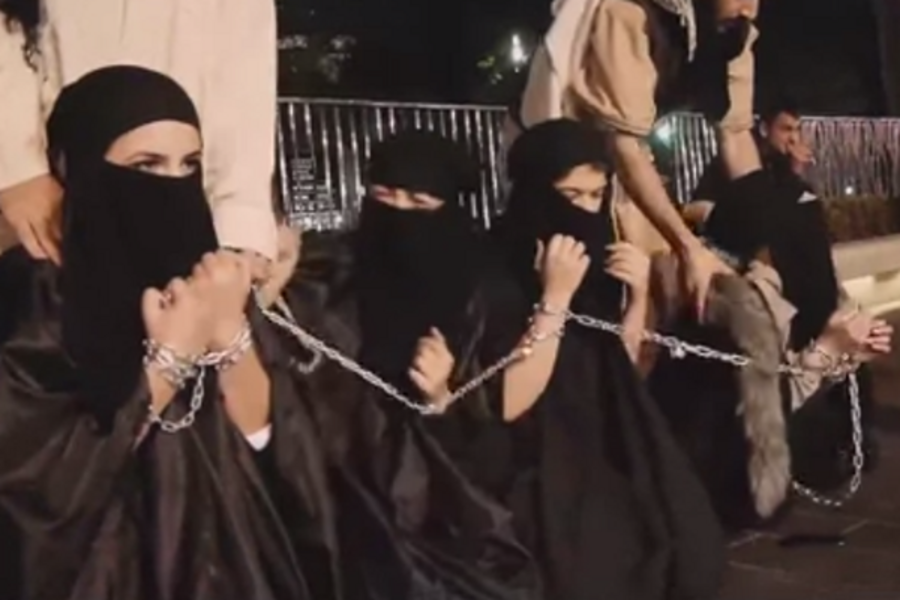
And they changed it because under Islamic law, the citizenship of a child derives from the father. That was the tradition and they had it and they changed the law so the citizenship could derive from the mother so that you wouldn’t have a child who was a citizen belonging to some ISIS beheader who was from Tunisia or Saudi Arabia.
Later on, I checked and found indeed that the parliament had changed the law and that gives you some indication of how massive this deliberate rape campaign was. I’m not saying that we generated the campaign, but we knew it was going on. And we condoned that.
The Syrian people despise the terrorists. There was never a terrorist who gained popularity with the Syrian people. And so as the war went on, the Syrian army drove the enemy back.
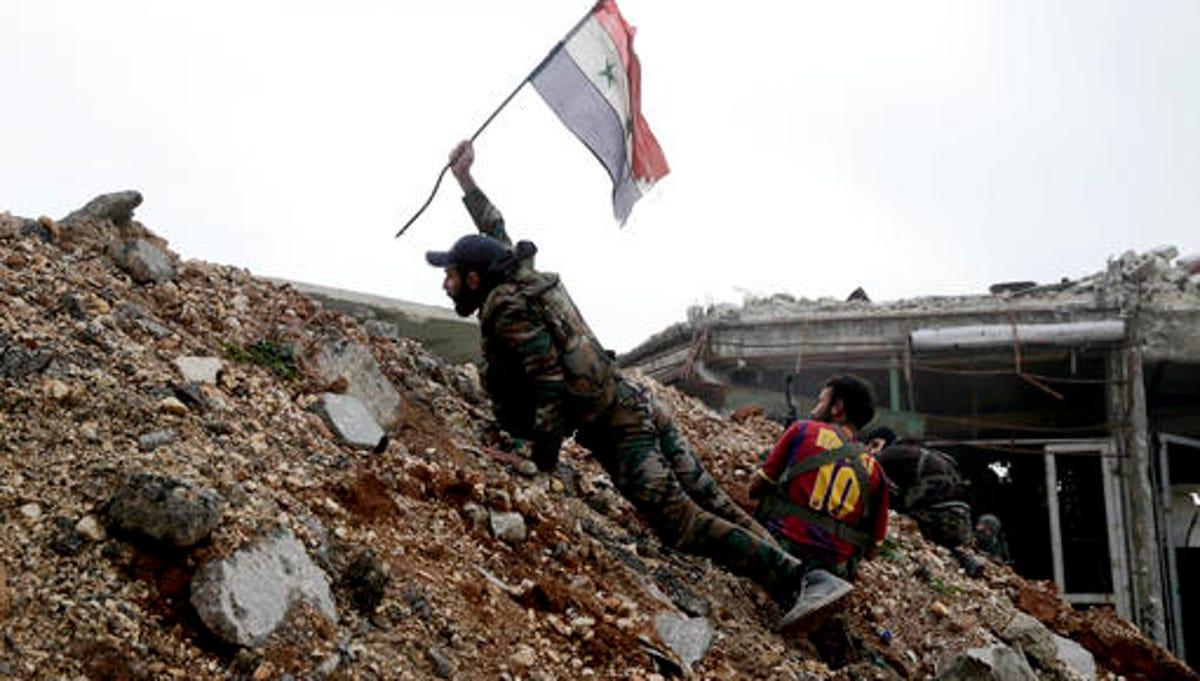
And at a certain point, Secretary John Kerry landed in Syria and he was doing some interviews in one of the areas that U.S. troops occupied and he said the Syrians have recaptured most of their country, but we’ve got a Plan B. He never told us what the Plan B was but Plan B, as it evolved, was a plan to seize control of the northern part of Syria to occupy it against all laws of international convention and to take the wheat-producing bread basket of Syria and create a permanent famine within the nation.
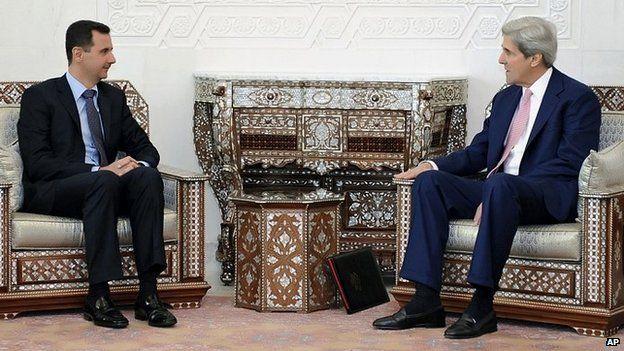
And we also seize the oil and gas production so that during the year we’re starving the people. And then in the wintertime, we freeze them and we impose these Caesar sanctions back a couple of years ago for the explicit purpose of preventing rebuilding. So if you don’t allow materials to come in to rebuild, the people just live in rubble.
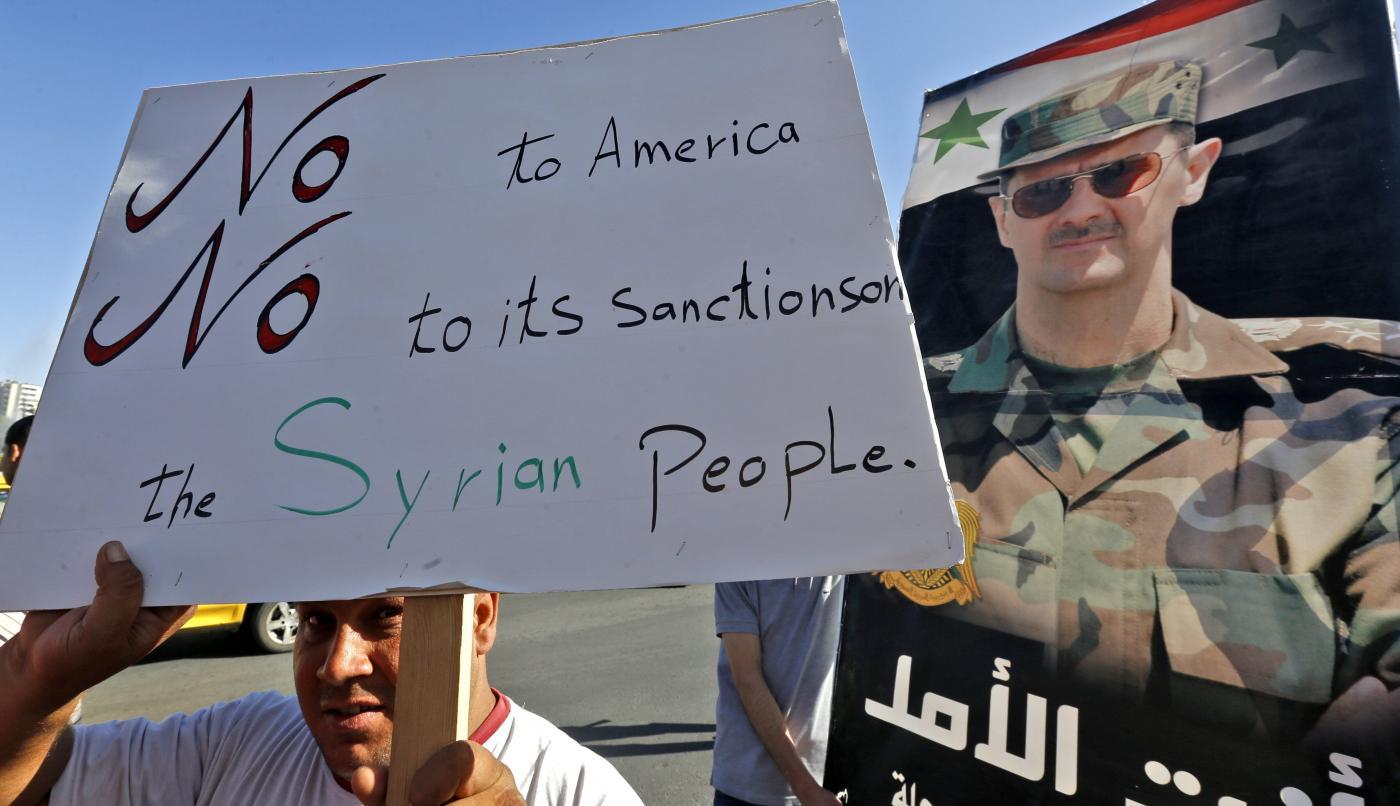
And so they’re subject to freezing. And I spoke to a young, beautiful young Syrian doctor who came back from visiting her family. And she says, it is heartbreaking. She says, it’s so hard for the old people to endure the cold in the winter time.
For some of us, we can just put on blankets and we can tough it out. But when you get to be 60 and 70 and 80 years old, its a tremendous burden on the people. We even have blockaded access to medicine by devaluing their currency. And we also have a naval blockade around Syria. And so women who get breast cancer—which has become a very treatable disease; it’s very serious— but there are certain medications that can go a long way to improving your chances of life. In Syria, the U.S. deliberately blocks the women from receiving breast cancer medications, and they simply die of breast cancer. It is inhuman. This Plan B is absolutely inhuman.
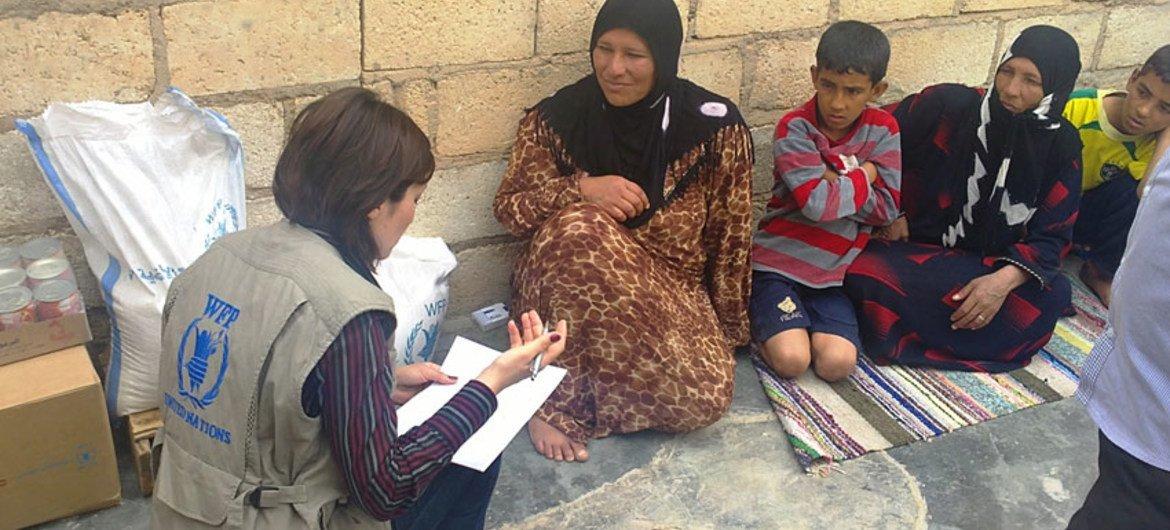
For years now, we’ve kept the people in a state of utter famine, freezing and death from disease. It is so cruel and here we are criticizing things that the Russians are doing. If the Russians were doing things like this—mass rape, a campaign denying people medicines, freezing them to death, starving them to death.
Why? My goodness, I would probably be calling for war against the Russians, but we just ignore what we’re doing with the Syrians. People don’t understand, it is too complex. And so it goes on, which is really disturbing.
Jeremy Kuzmarov: Disturbing indeed. And it is rarely discussed here—how all the people are suffering.
Colonel Black: Let me finish by saying that I have never received a penny from anybody. I don’t earn money by my blogging. I get nothing from anything that I’m doing for Syria, or to stop the war in Russia, not a penny of any sort. By way of background, I don’t have any ax to grind. I’ve been a [state] Senator. I don’t want a position. I don’t want money. I don’t want power. I don’t want anything from anybody, but I do want to see peace. I’ve got 16 grandchildren and I don’t want them trotted off to die overseas. And I don’t want a nuclear war to wipe them out over here.

CovertAction Magazine is made possible by subscriptions, orders and donations from readers like you.
Blow the Whistle on U.S. Imperialism
Click the whistle and donate
When you donate to CovertAction Magazine, you are supporting investigative journalism. Your contributions go directly to supporting the development, production, editing, and dissemination of the Magazine.
CovertAction Magazine does not receive corporate or government sponsorship. Yet, we hold a steadfast commitment to providing compensation for writers, editorial and technical support. Your support helps facilitate this compensation as well as increase the caliber of this work.
Please make a donation by clicking on the donate logo above and enter the amount and your credit or debit card information.
CovertAction Institute, Inc. (CAI) is a 501(c)(3) non-profit organization and your gift is tax-deductible for federal income purposes. CAI’s tax-exempt ID number is 87-2461683.
We sincerely thank you for your support.
Disclaimer: The contents of this article are the sole responsibility of the author(s). CovertAction Institute, Inc. (CAI), including its Board of Directors (BD), Editorial Board (EB), Advisory Board (AB), staff, volunteers and its projects (including CovertAction Magazine) are not responsible for any inaccurate or incorrect statement in this article. This article also does not necessarily represent the views the BD, the EB, the AB, staff, volunteers, or any members of its projects.
Differing viewpoints: CAM publishes articles with differing viewpoints in an effort to nurture vibrant debate and thoughtful critical analysis. Feel free to comment on the articles in the comment section and/or send your letters to the Editors, which we will publish in the Letters column.
Copyrighted Material: This web site may contain copyrighted material the use of which has not always been specifically authorized by the copyright owner. As a not-for-profit charitable organization incorporated in the State of New York, we are making such material available in an effort to advance the understanding of humanity’s problems and hopefully to help find solutions for those problems. We believe this constitutes a ‘fair use’ of any such copyrighted material as provided for in section 107 of the US Copyright Law. You can read more about ‘fair use’ and US Copyright Law at the Legal Information Institute of Cornell Law School.
Republishing: CovertAction Magazine (CAM) grants permission to cross-post CAM articles on not-for-profit community internet sites as long as the source is acknowledged together with a hyperlink to the original CovertAction Magazine article. Also, kindly let us know at info@CovertActionMagazine.com. For publication of CAM articles in print or other forms including commercial internet sites, contact: info@CovertActionMagazine.com.
By using this site, you agree to these terms above.
About the Author

Jeremy Kuzmarov holds a Ph.D. in American history from Brandeis University and has taught at numerous colleges across the United States. He is regularly sought out as an expert on U.S. history and politics for radio and TV programs and co-hosts a radio show on New York Public Radio and on Progressive Radio News Network called “Uncontrolled Opposition.”
He is Managing Editor of CovertAction Magazine and is the author of six books on U.S. foreign policy, including Obama’s Unending Wars (Clarity Press, 2019), The Russians Are Coming, Again, with John Marciano (Monthly Review Press, 2018), Warmonger. How Clinton’s Malign Foreign Policy Launched the U.S. Trajectory From Bush II to Biden (Clarity Press, 2023); and with Dan Kovalik, Syria: Anatomy of Regime Change (Baraka Books, 2025).
Besides these books, Kuzmarov has published hundreds of articles and contributed to numerous edited volumes, including one in the prestigious Oxford History of Counterinsurgency .
He can be reached at jkuzmarov2@gmail.com and found on substack here.

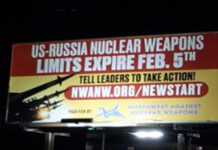
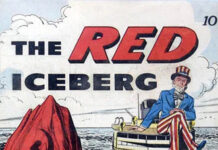

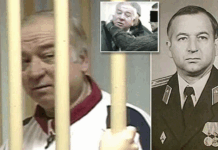
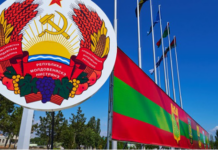
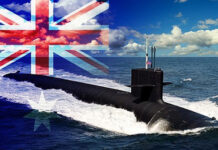


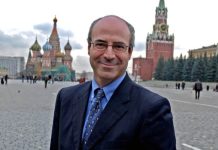

[…] Former Virginia State Senator and Purple Heart Winner Warns: “We’re at a 1914 Moment,” by Jere… […]
[…] Jerry Kuzmarov, Covert Action Magazine, […]
This interview article is yet another excoriating exposure of the potentially catastrophic perfidy rife on the battleground frontlines against Russia in the proxy war that the US/NATO
This interview article is yet another excoriating exposure of the potentially catastrophic perfidy rife on the battleground frontlines against Russia in the proxy war that the US/NATO have engineered. Thanks again, Jeremy. Your work rate is terrific!
Good stuff (about bad actors), thank you Jeremy, for the interview, Richard Black is a top class conservative.
Get $194 per h from Google!… Indeed this can be best since I basically got my underlying finance check of $24412 and this was simply of one week…I am aslo purchased Range Rover Velar right after this payment… it is really best job I have even had and you will not for give yourself if you not check it
>>>>> https://extrasavingshere1.blogspot.com/